#07 Dealer McDope Triangle Tryst
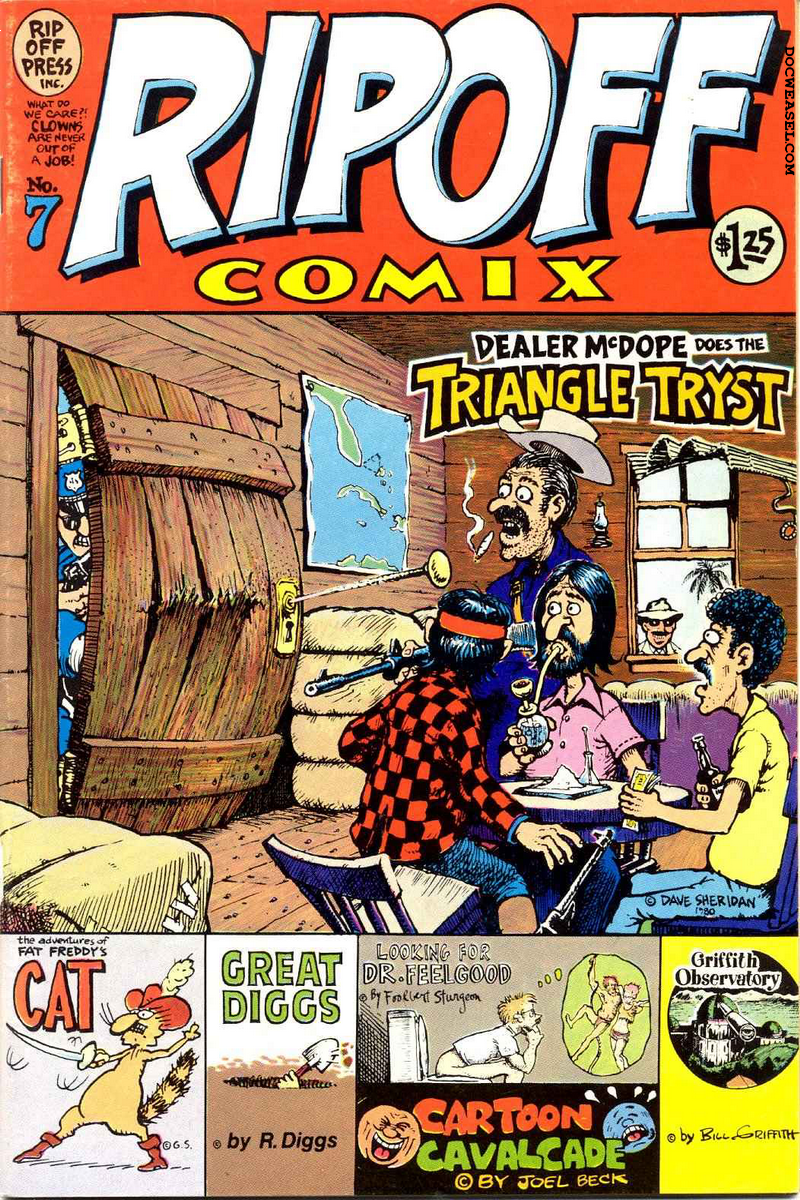 #07 Dealer McDope Triangle Tryst
#07 Dealer McDope Triangle Tryst
Only Printing / Fall 1980 / 52 pages / Rip Off Press
Ok You Guys • Bon Voyage • Psycho • Blah • $ • Dealer McDope Triangle Tryst • Great American Drug Scene • Art in America • Cartoon Cavalcade Portrait of Me • Flakey Dom’s Finest Moments • Freeway Funnies • Nightmares of Eminent People • Are you a Boozhie? • Mansard Roof Syndrome • Snap Judgements • New York Again • Griffith Observatory Useless Objects • Stupidity Patrol • Time Warped • 5 Great Moments in the Life of Jimmy Durante • Where’s the Party? • Fat Freddy’s Cat Sacred Sands of Pootweet • Looking for Dr. Feelgood • Griffith Observatory People Watching • Fat Freddy’s Cat • Future World ROP
#07 Dealer McDope Triangle Tryst
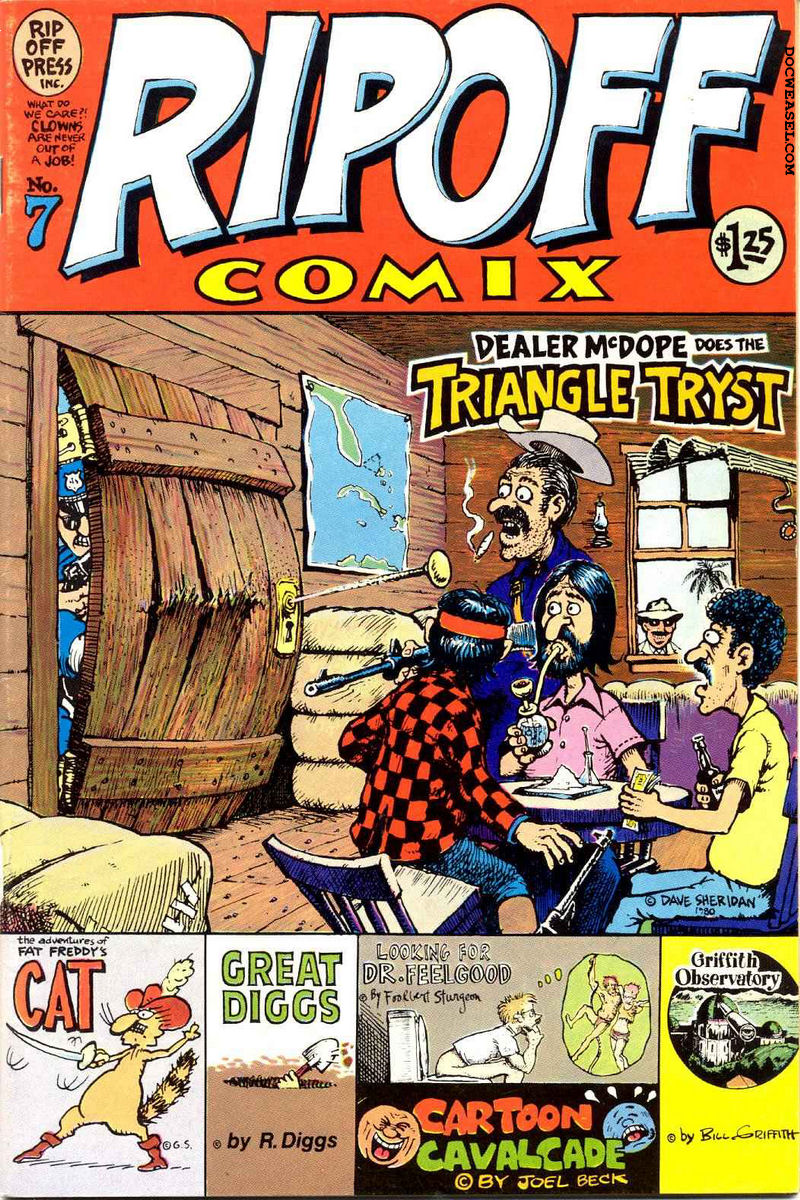
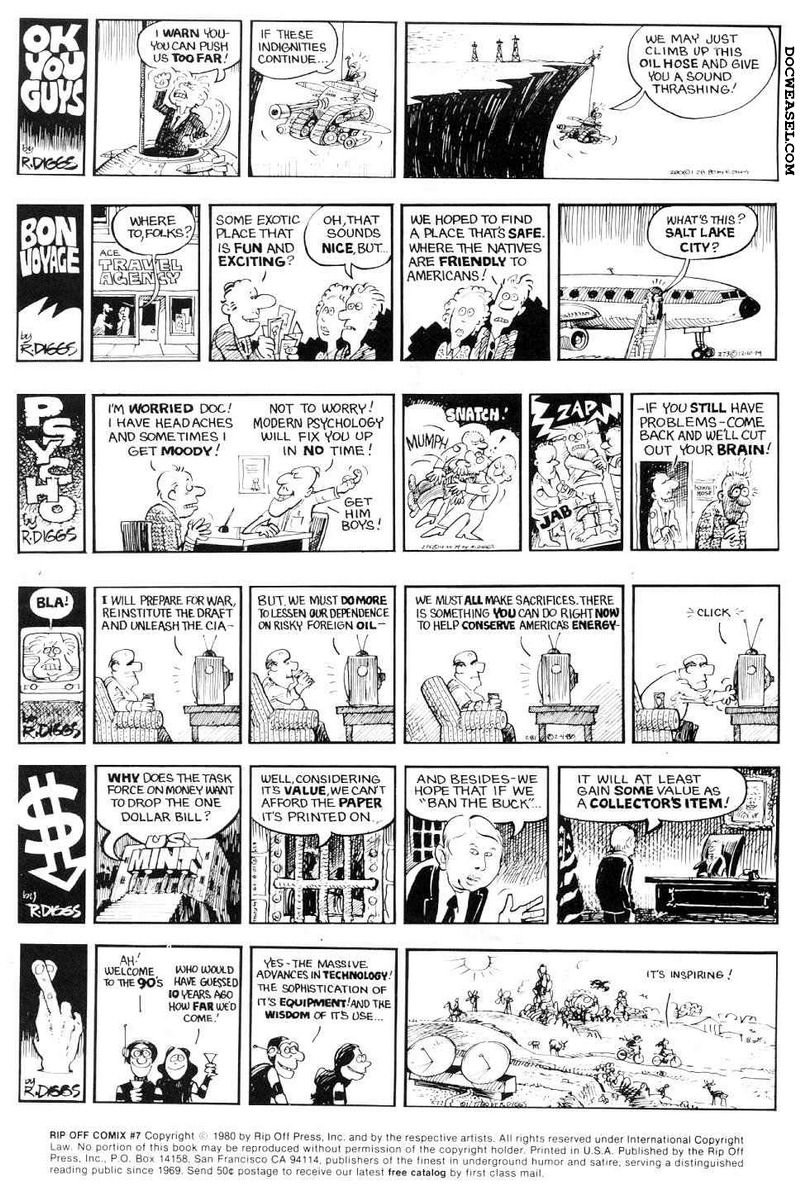
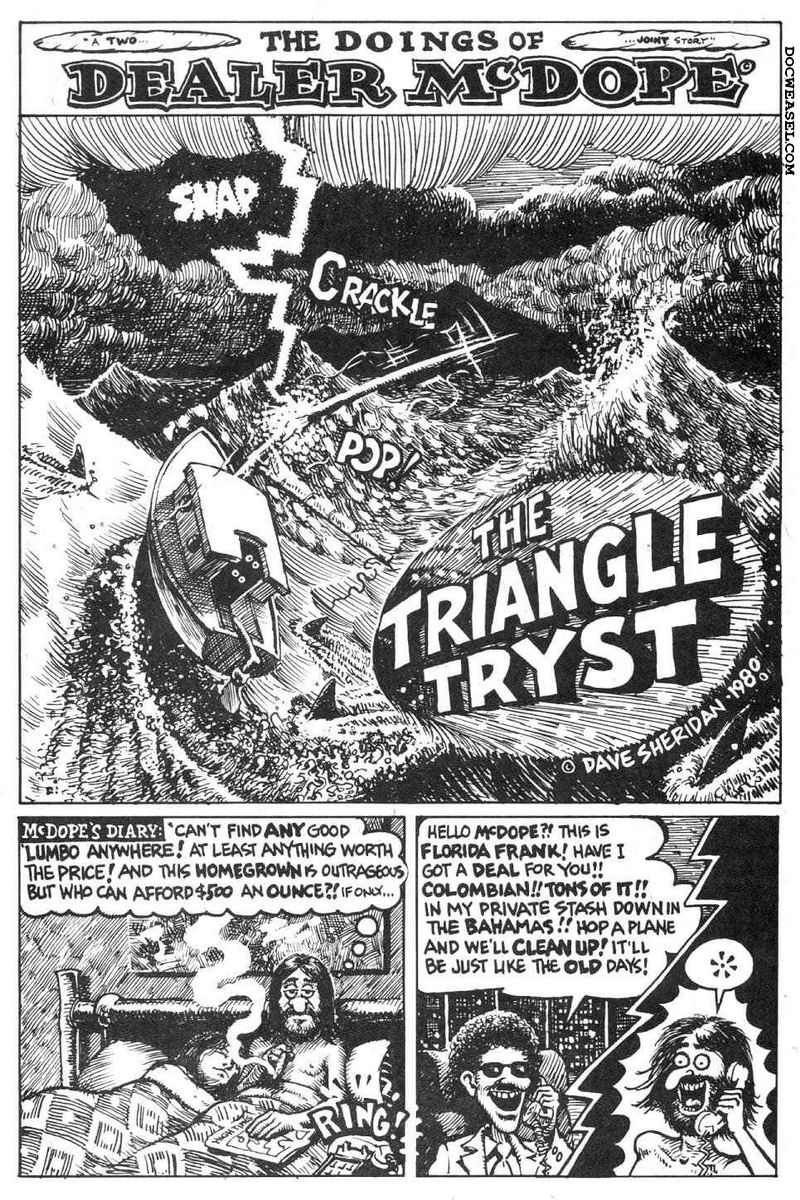
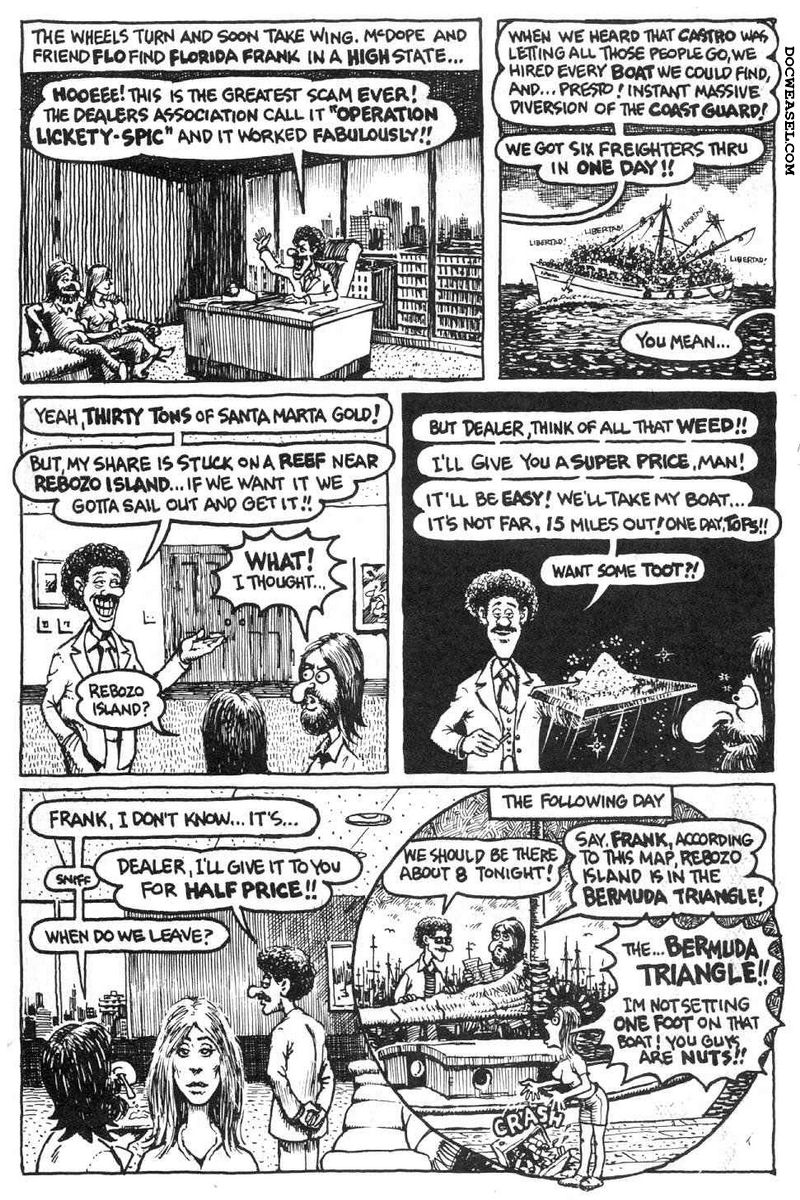
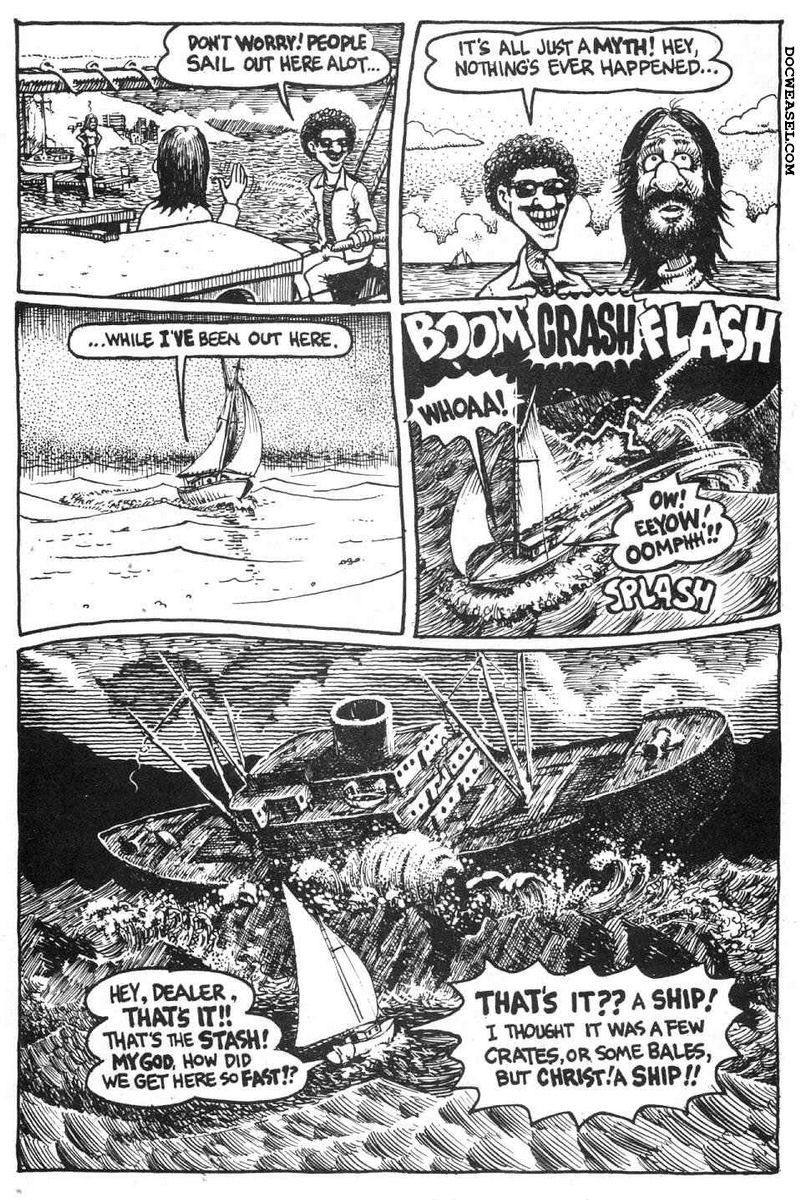
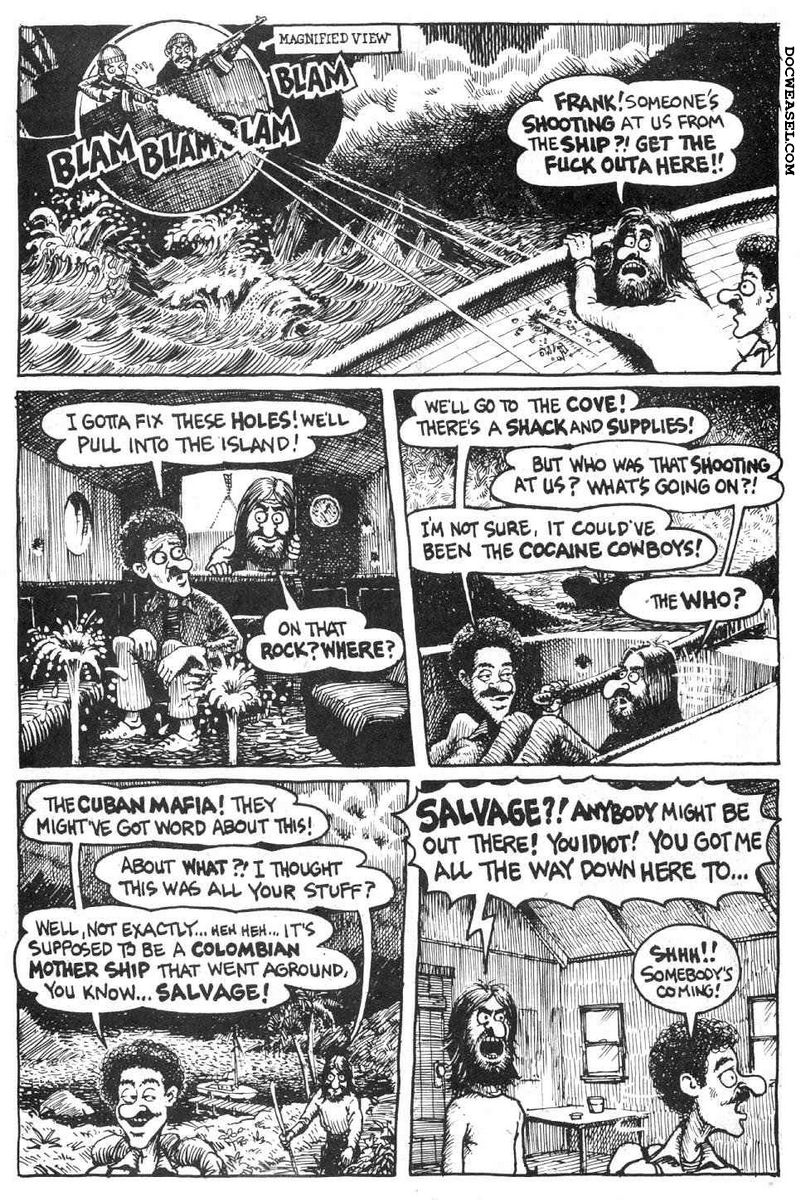
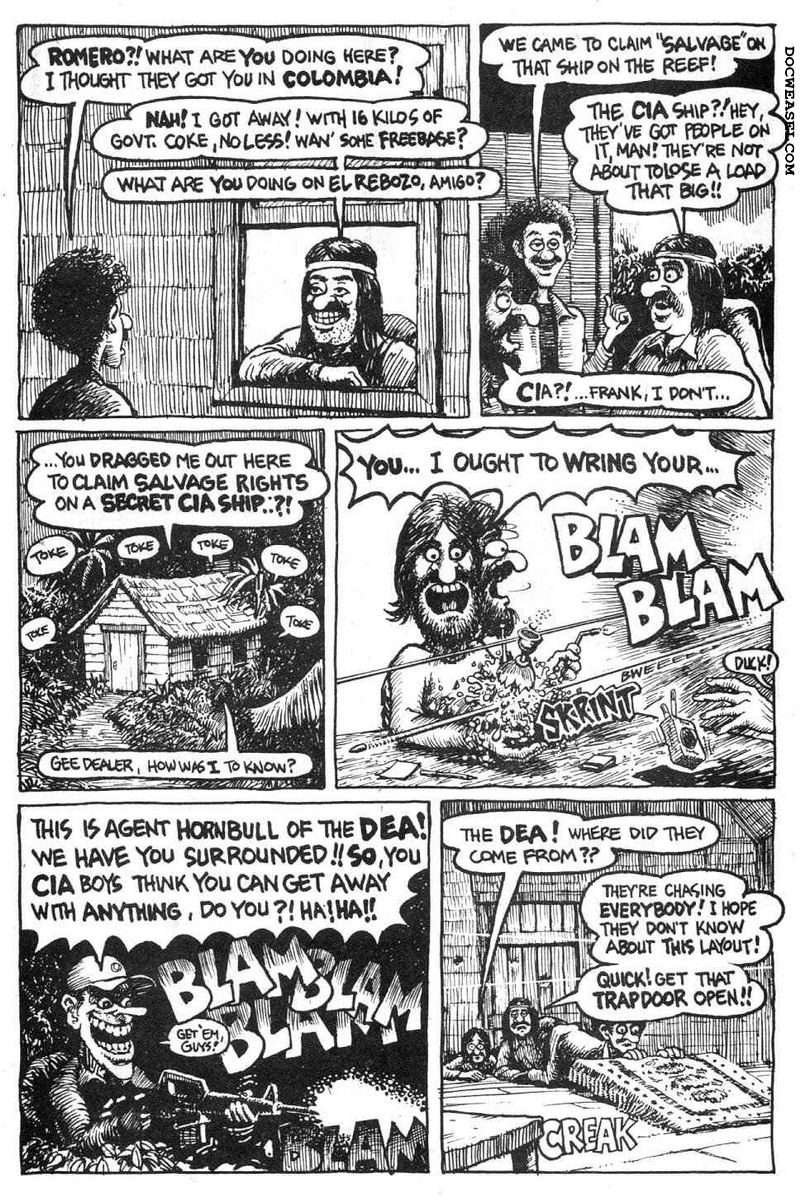
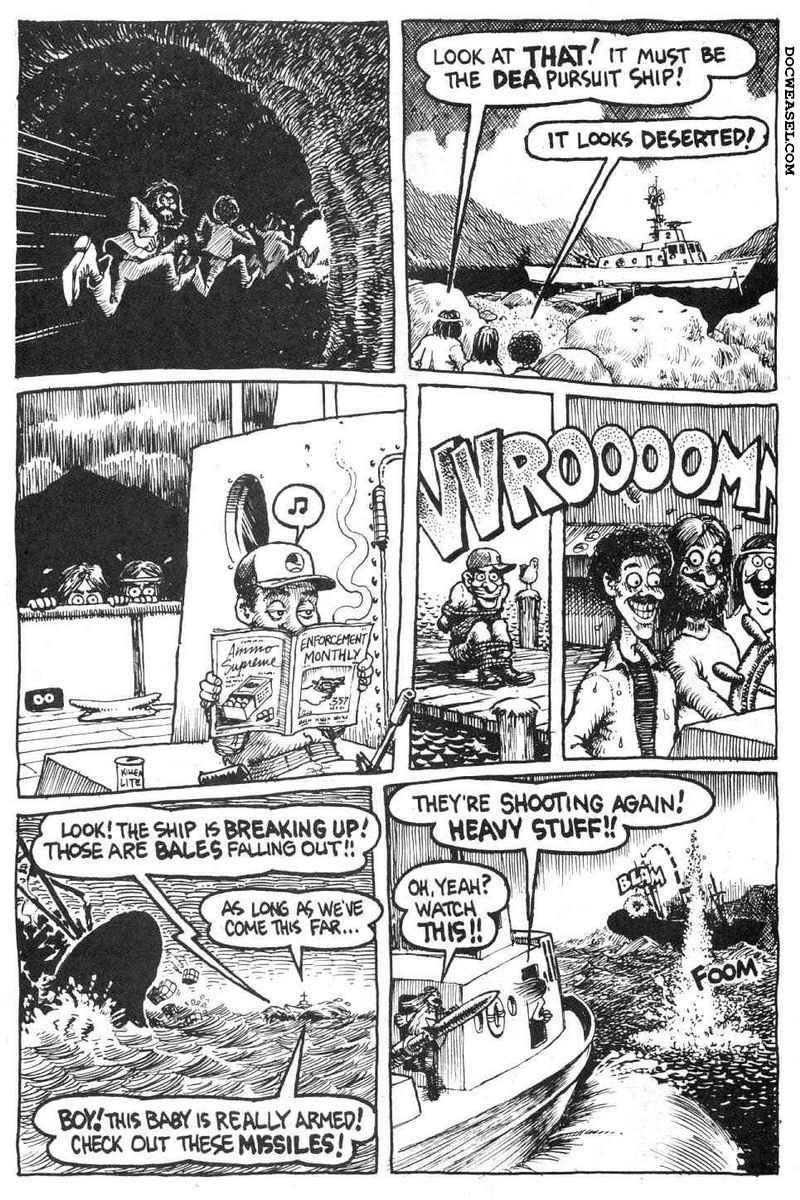
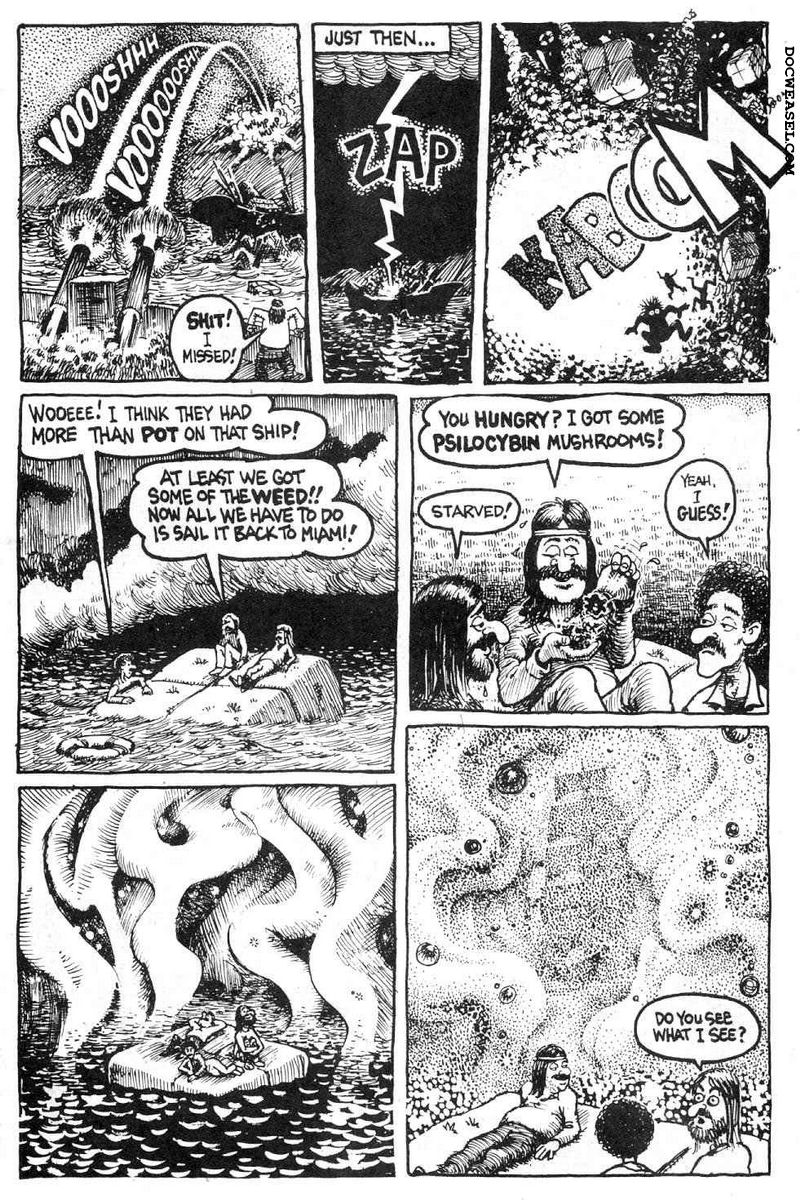
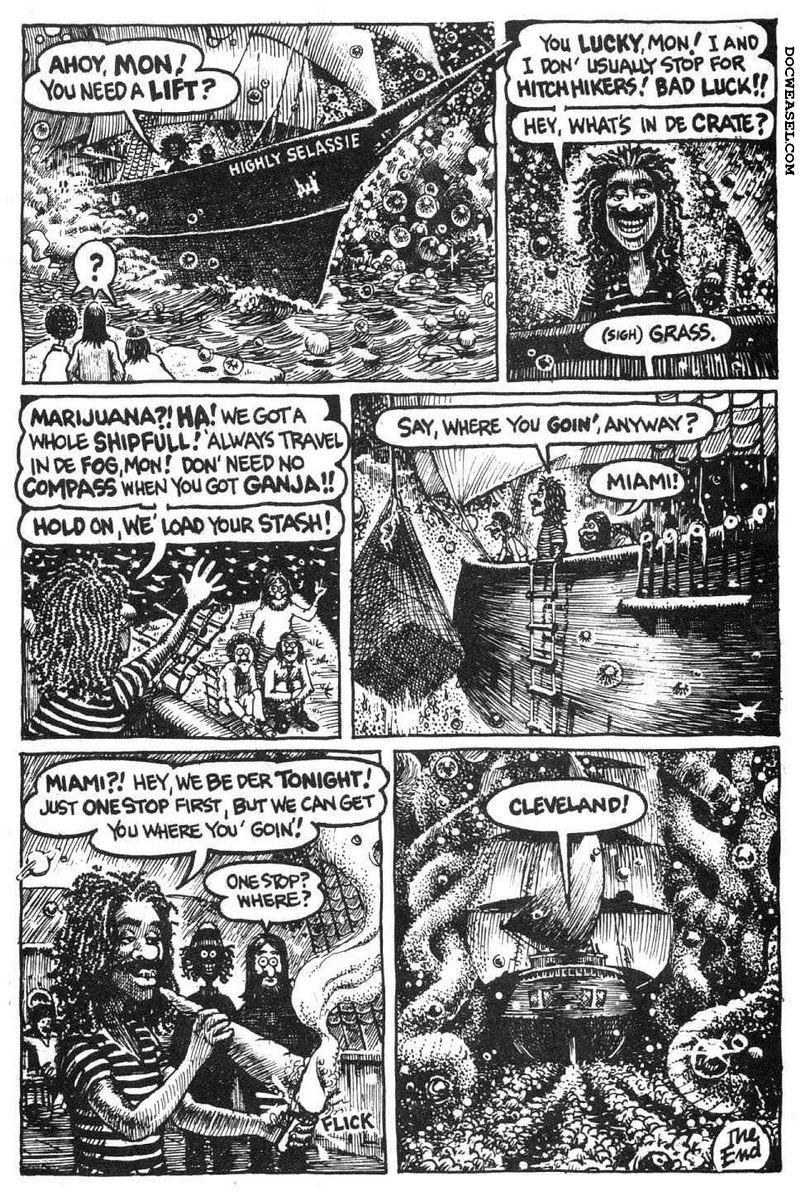
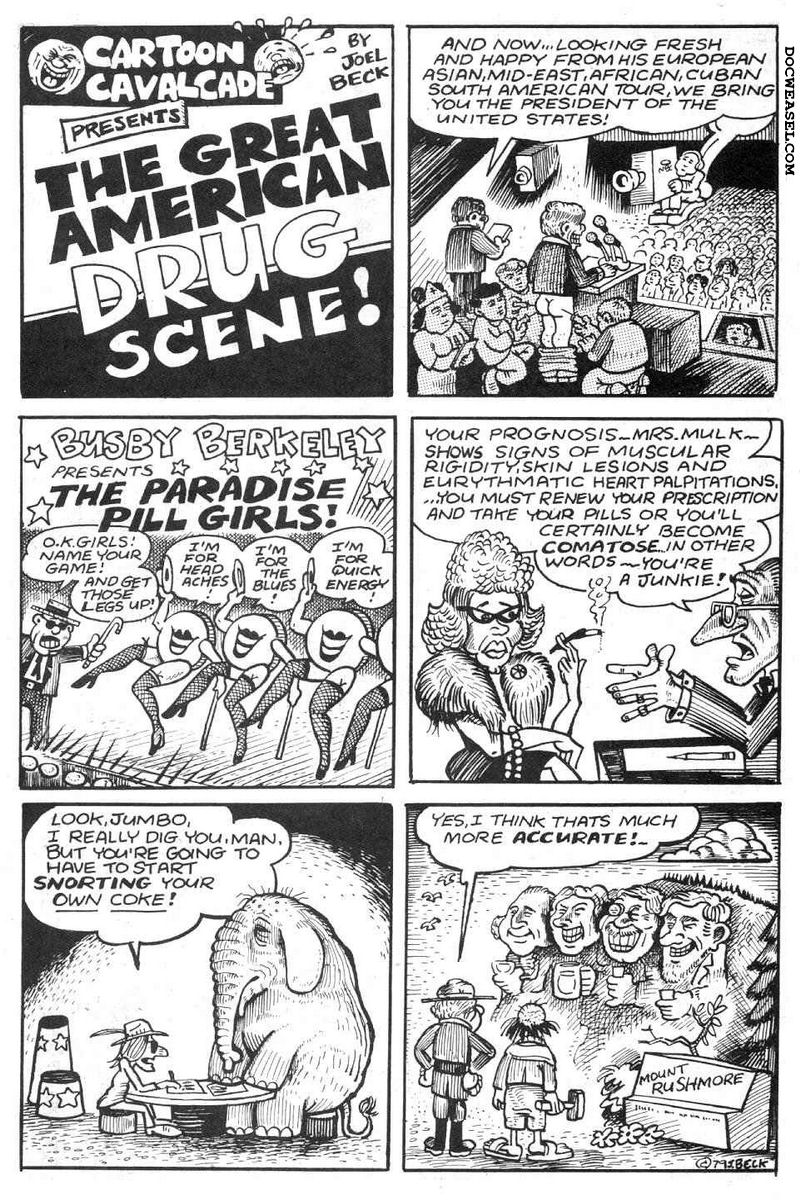
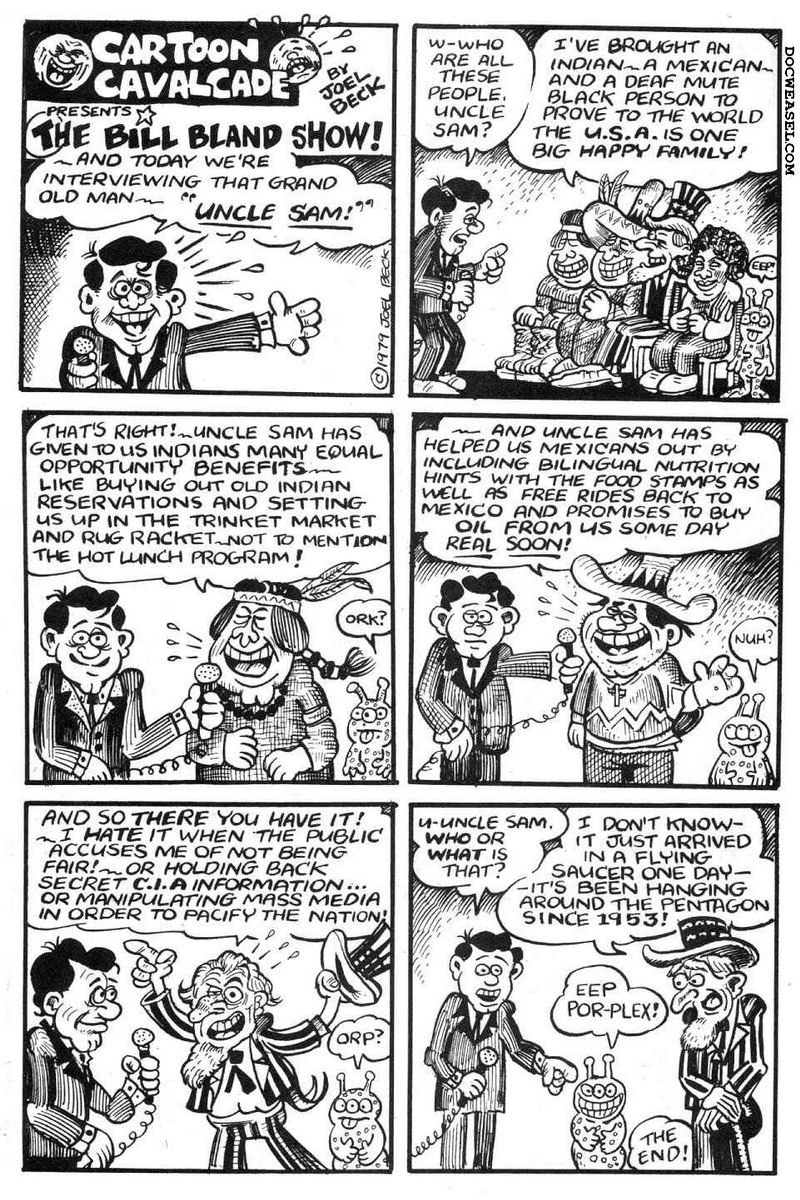
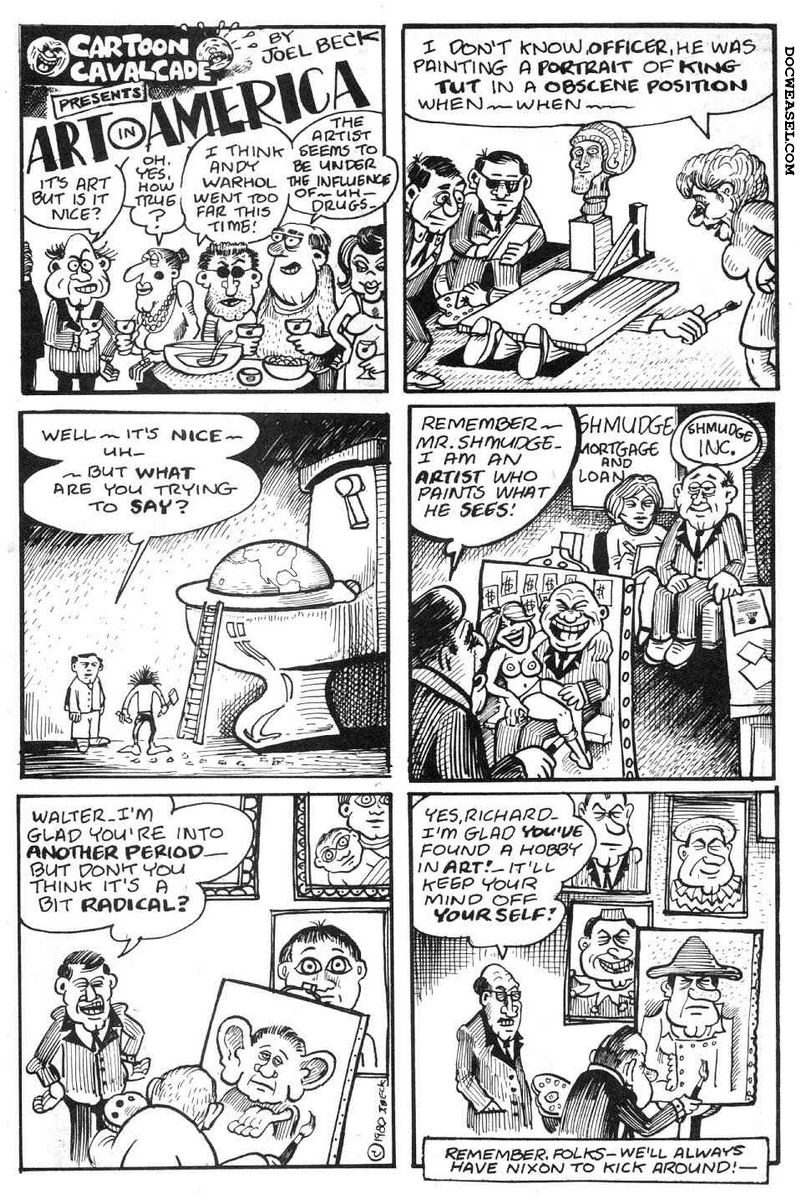
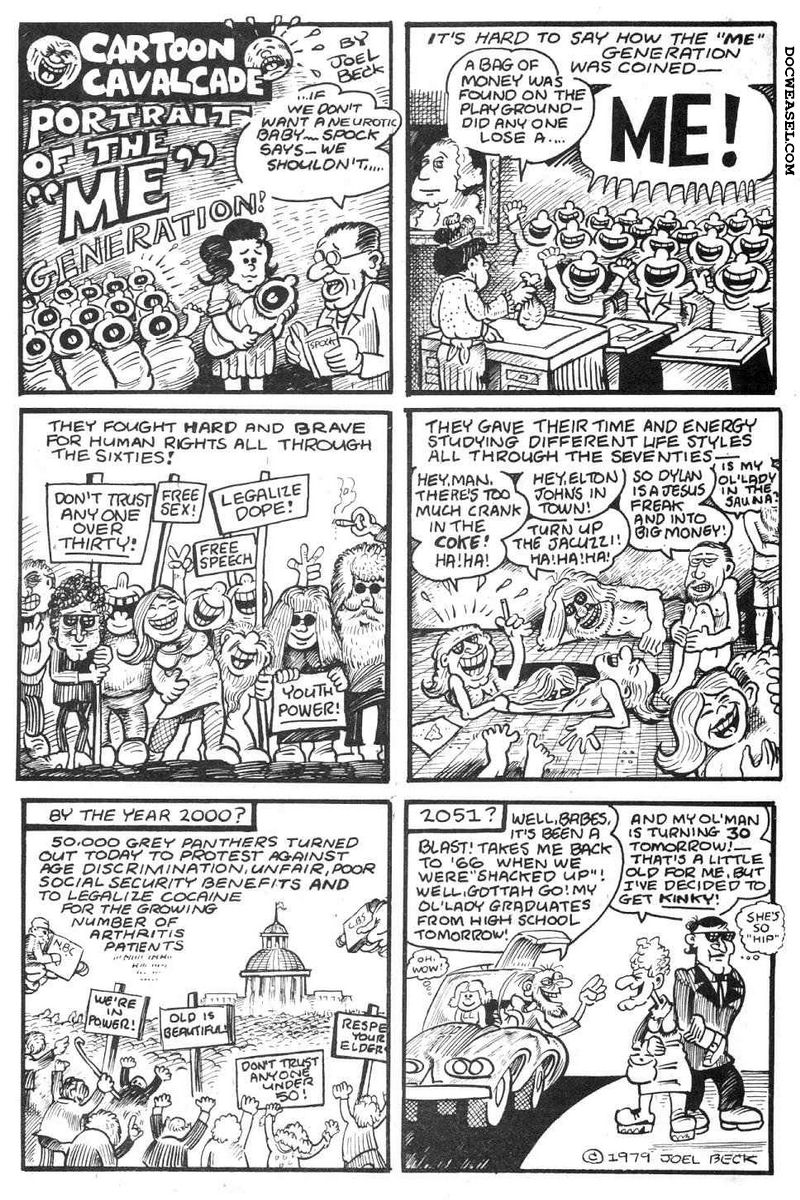
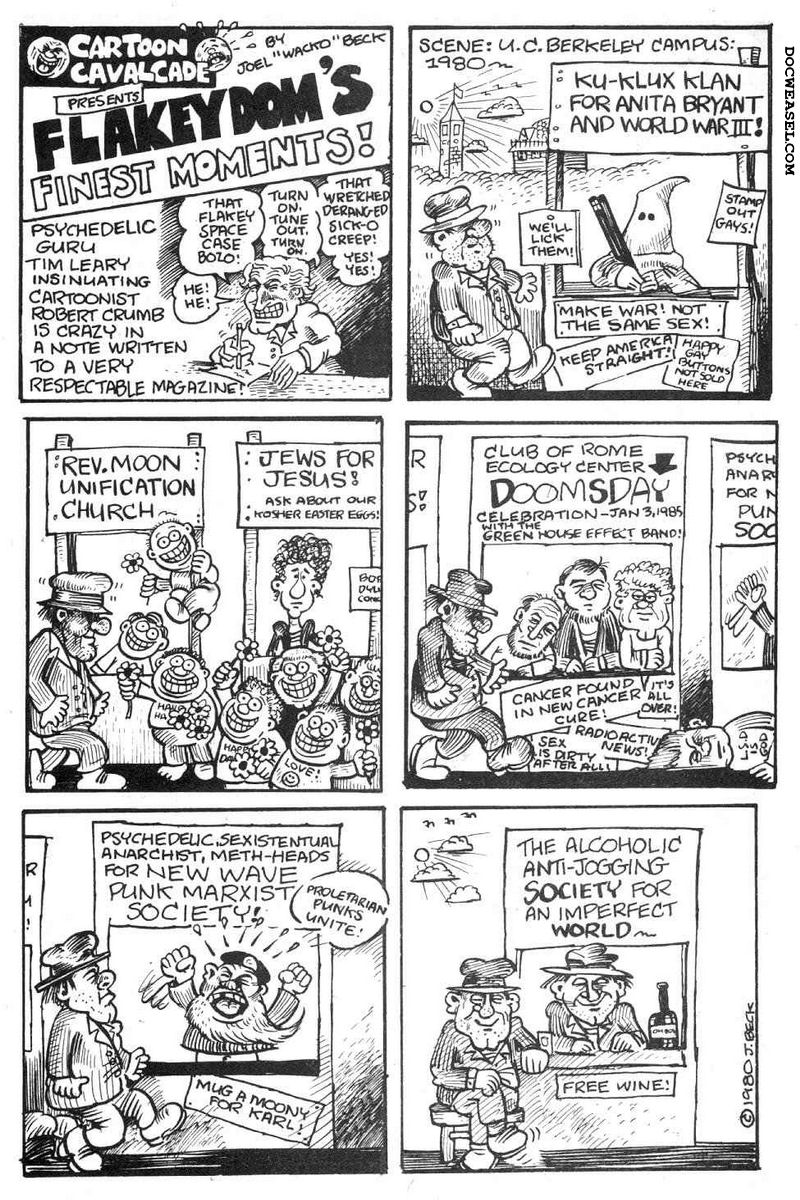
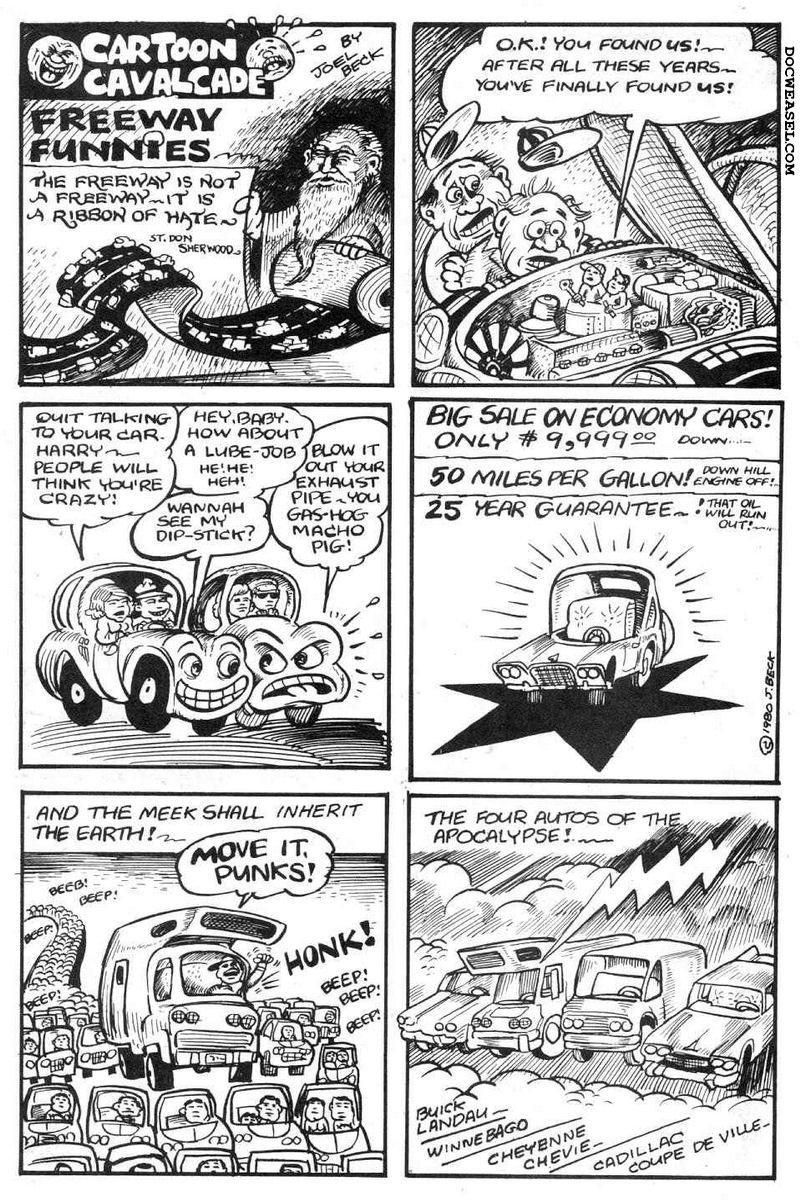
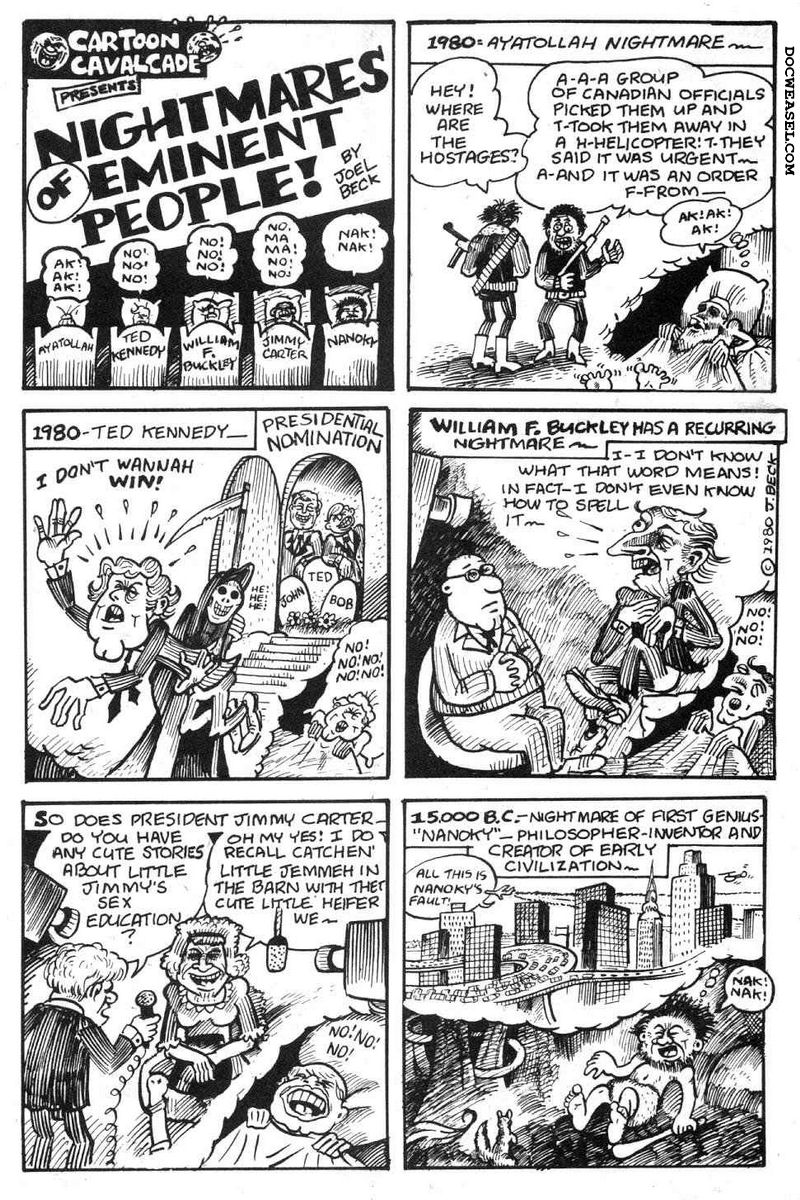
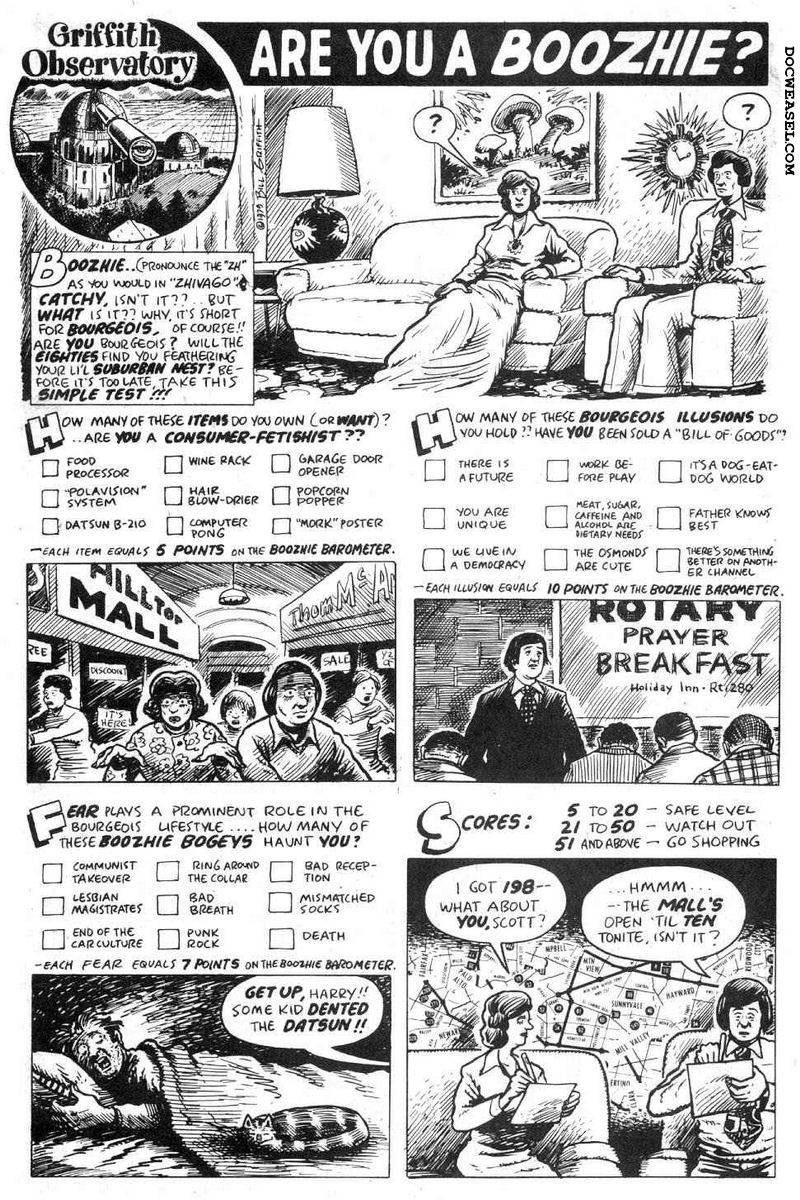
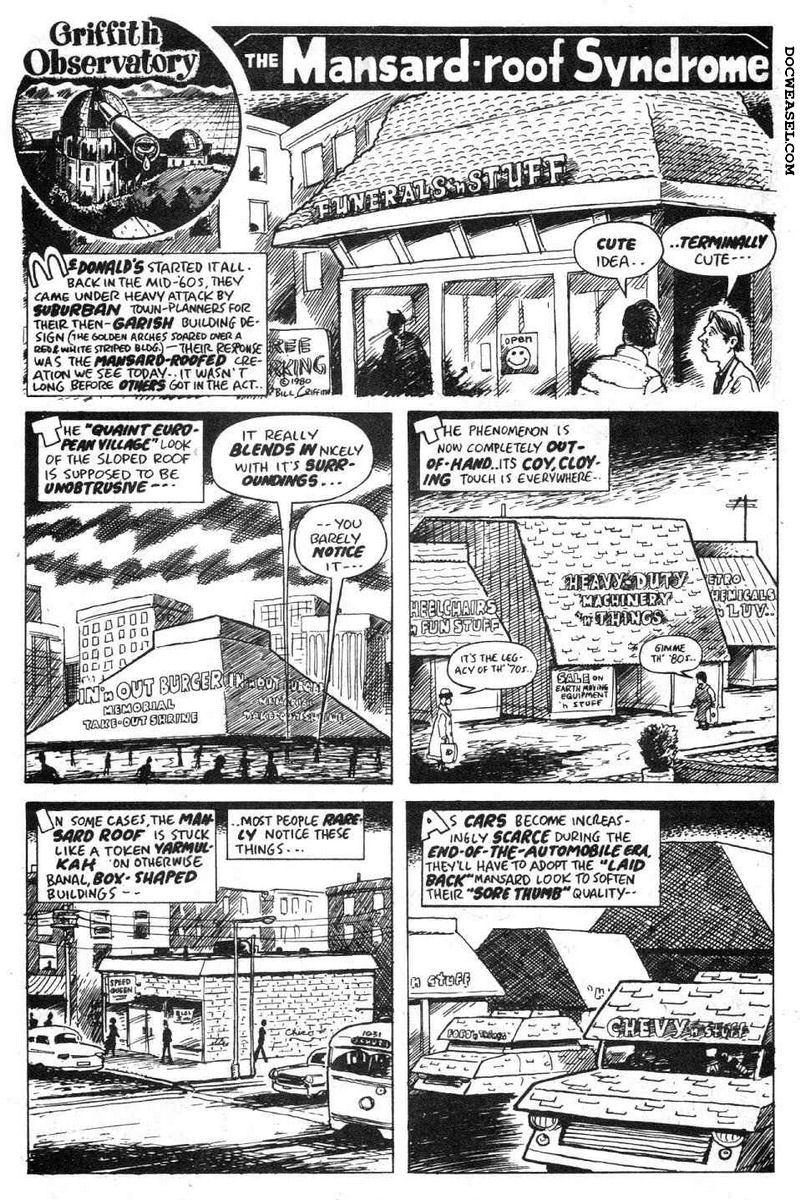
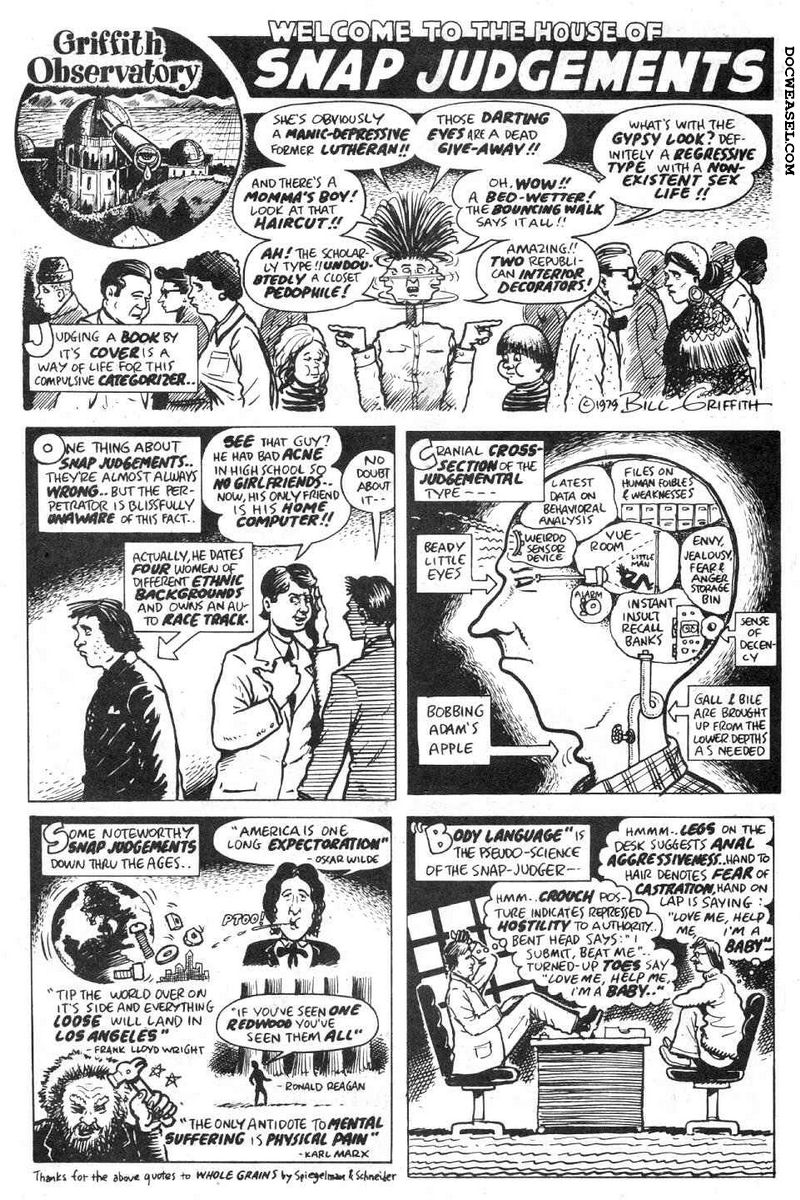
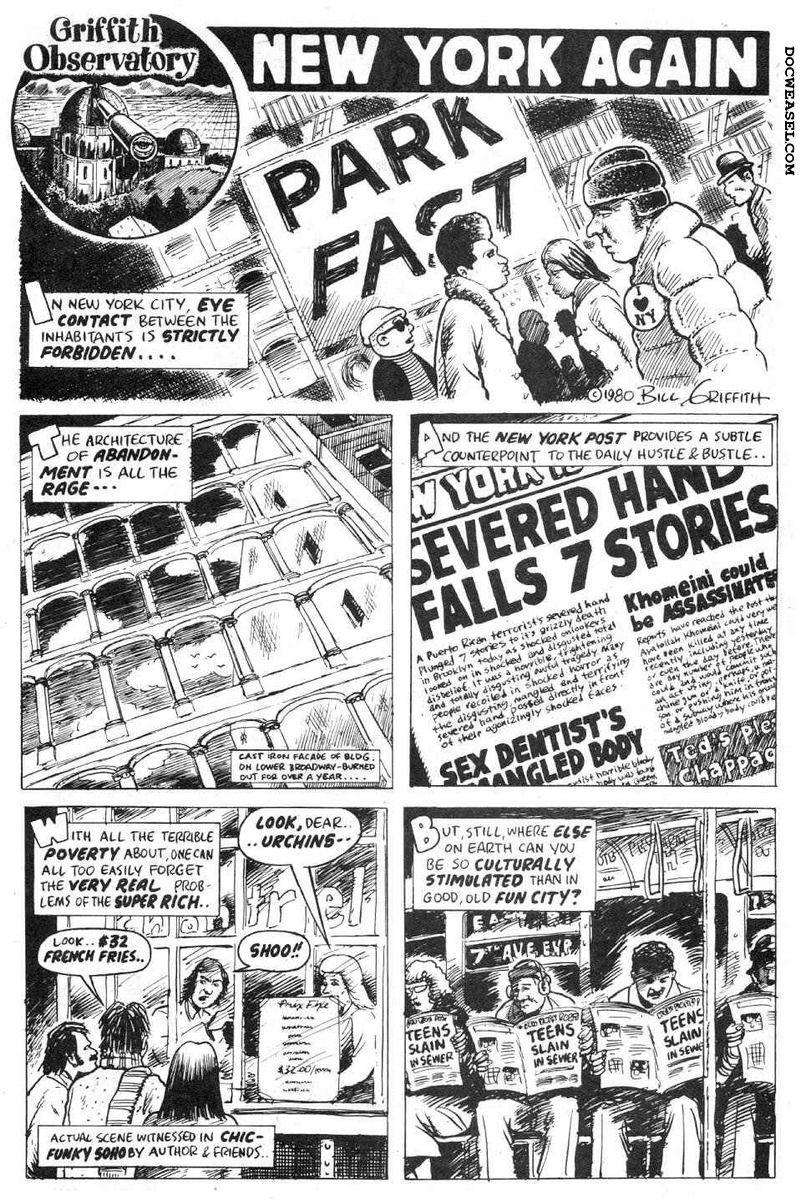
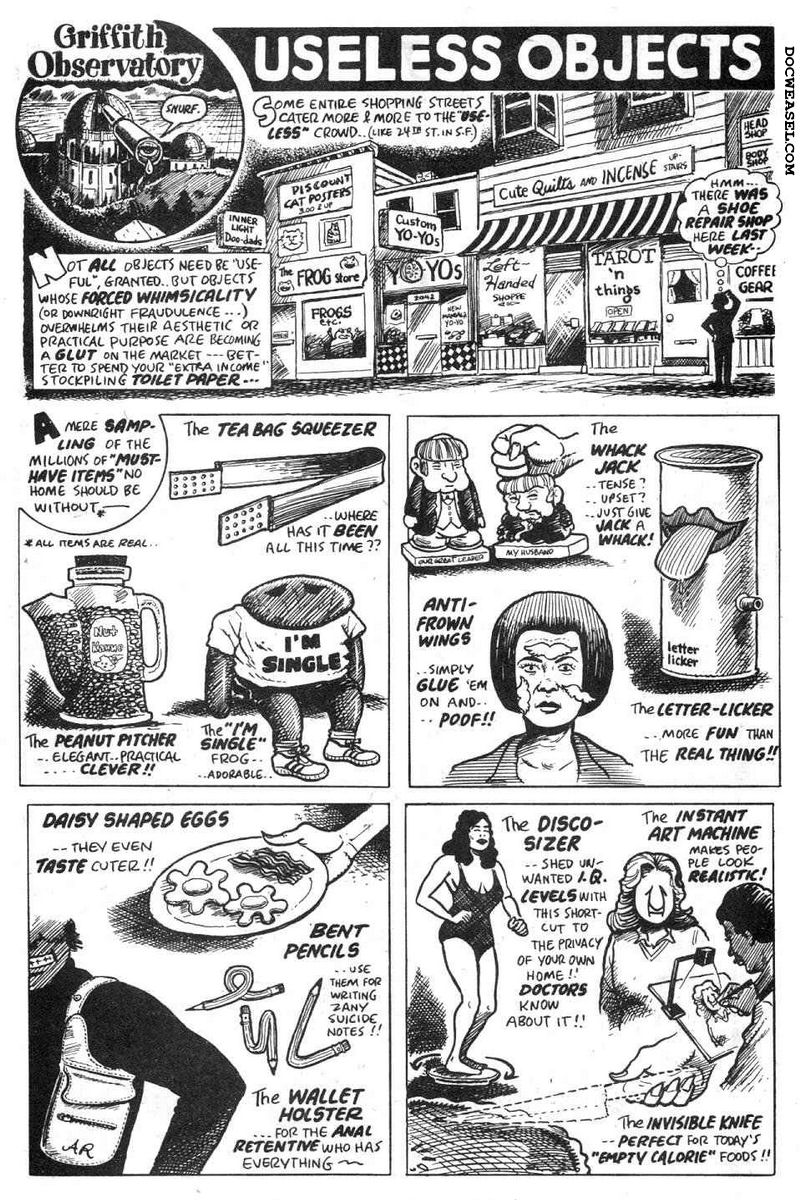
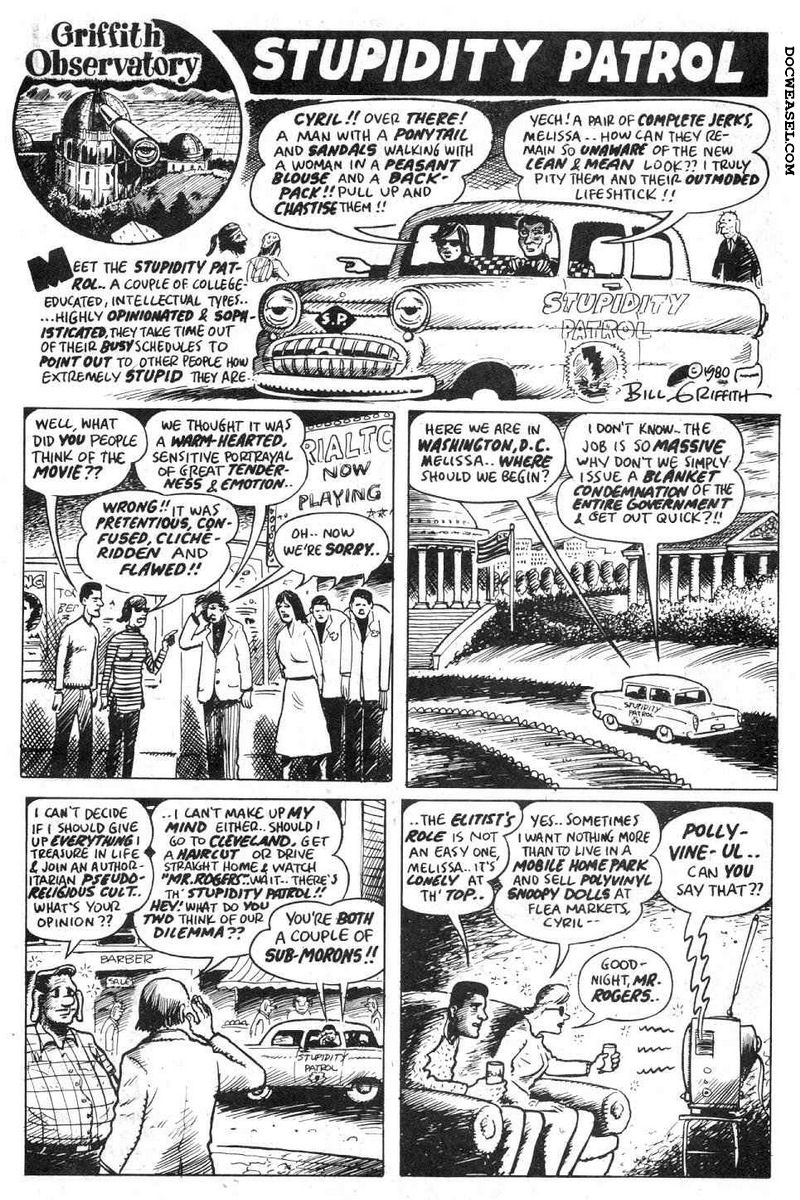
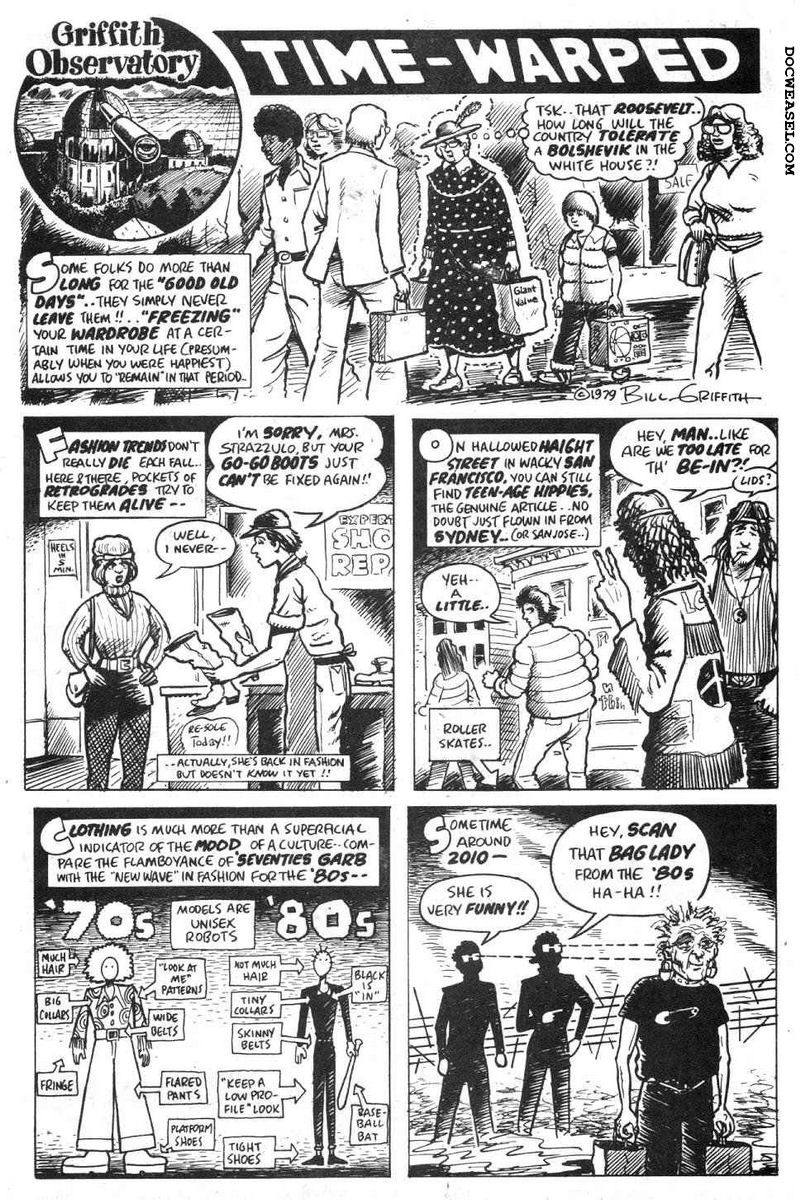
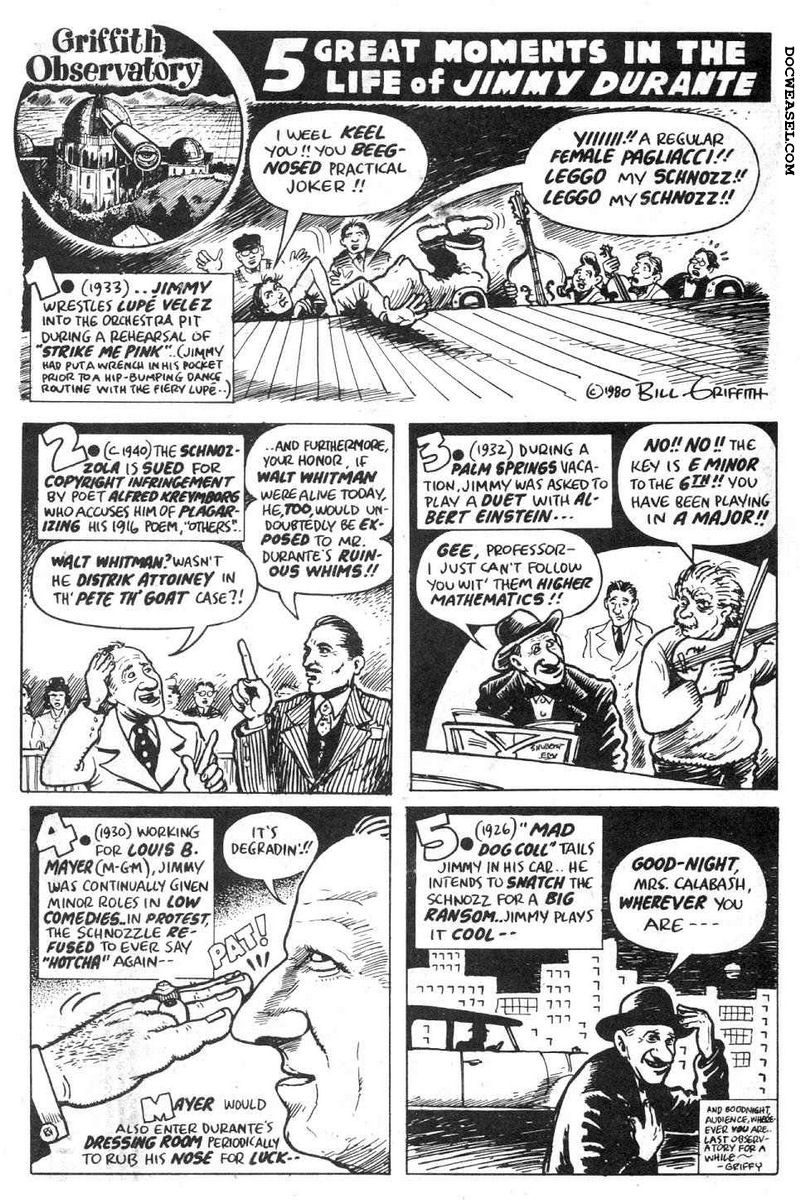
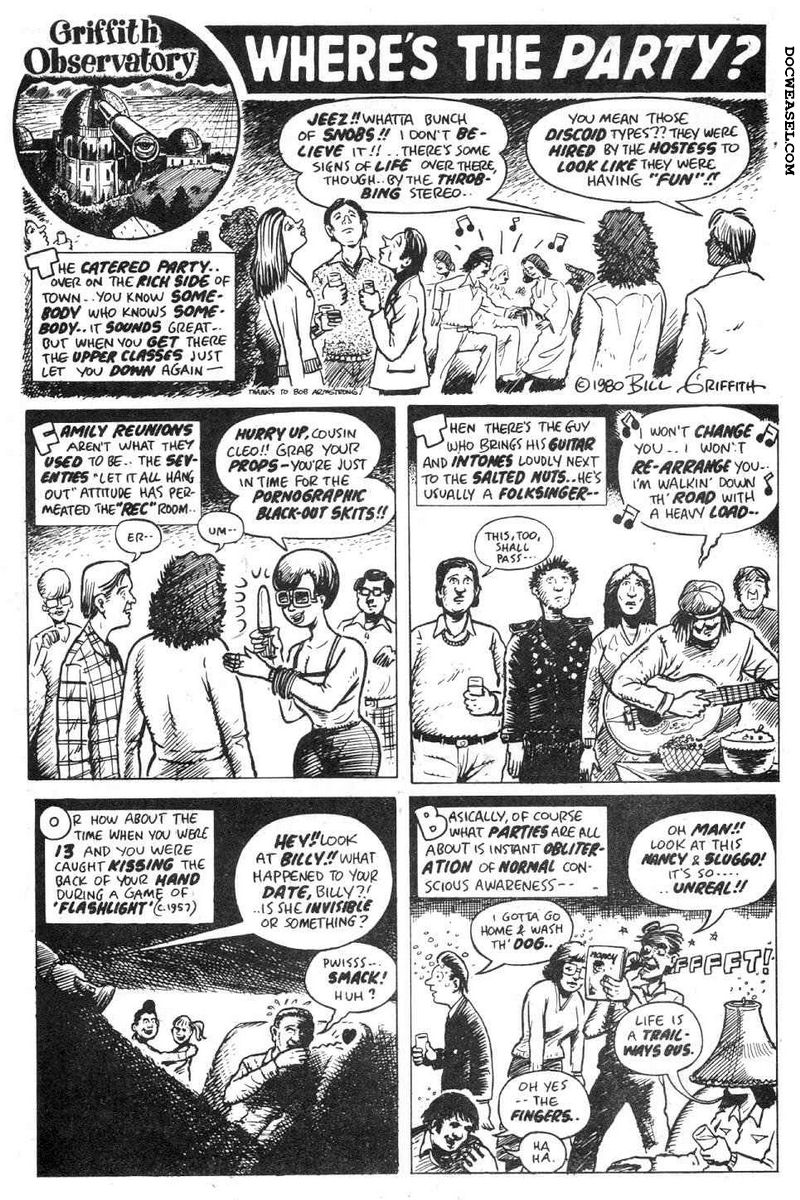
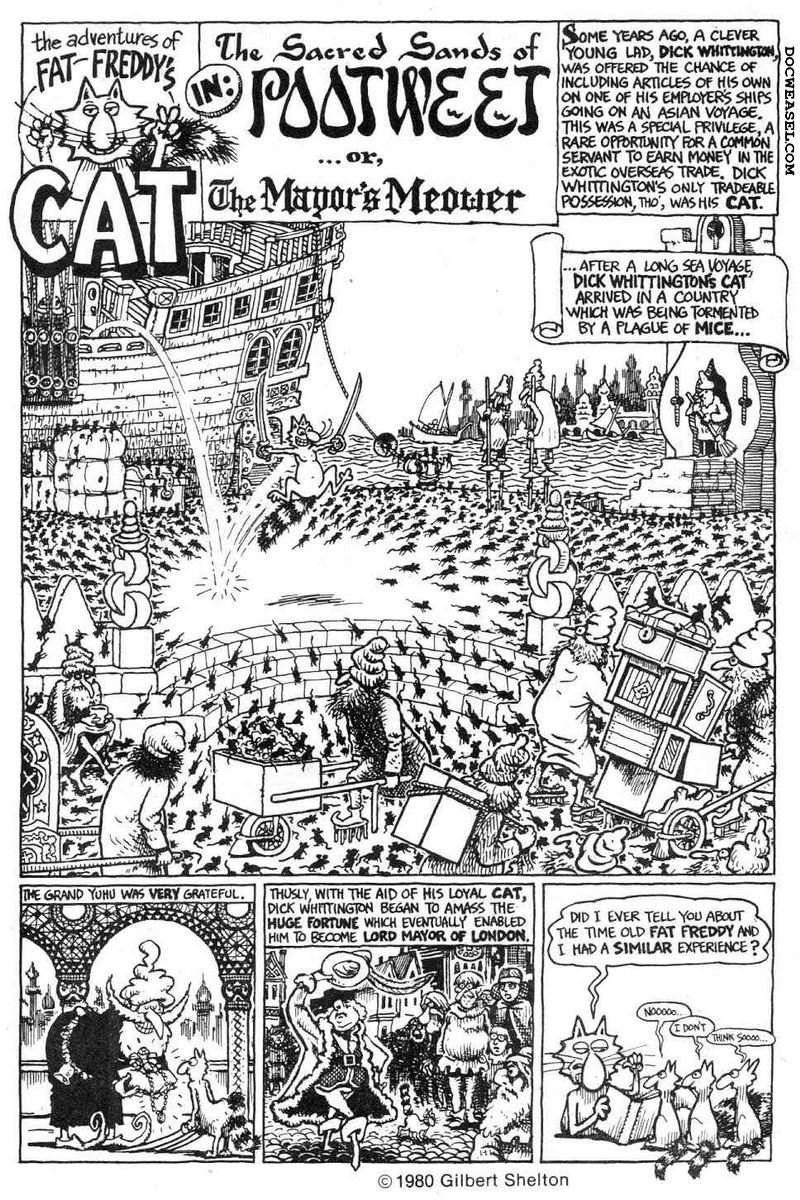
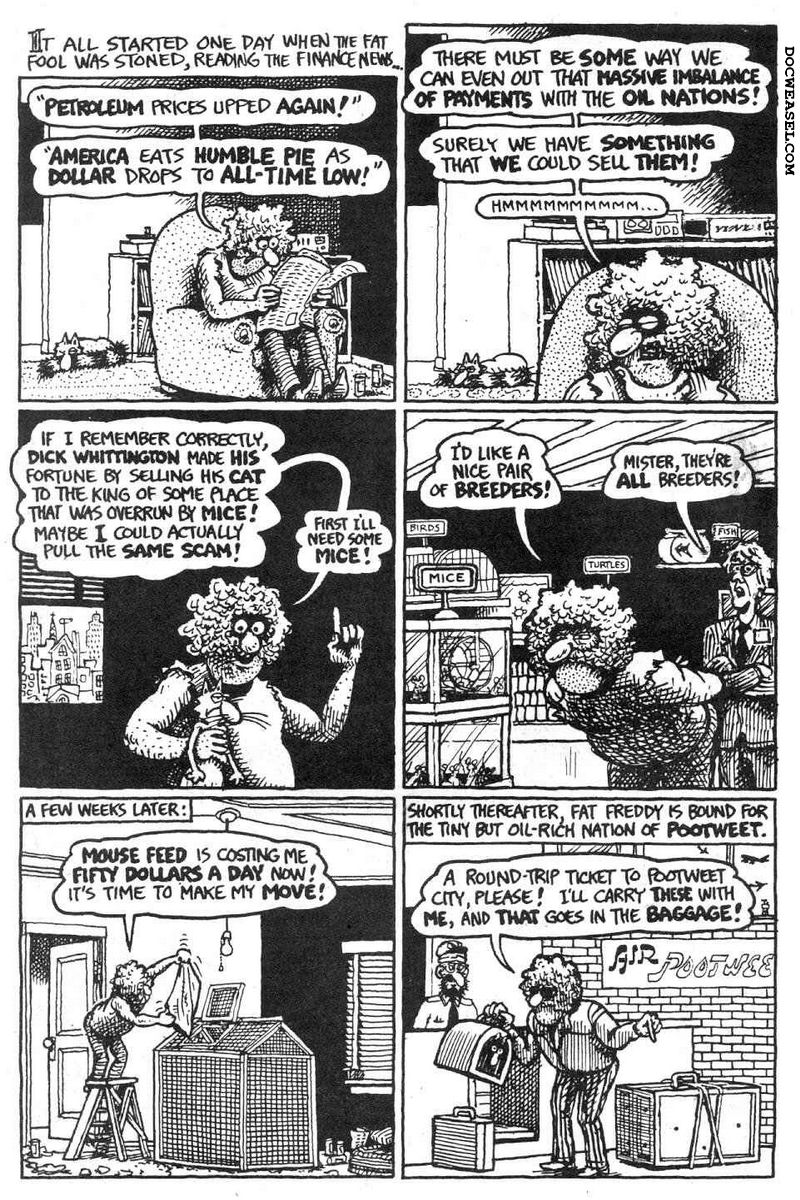
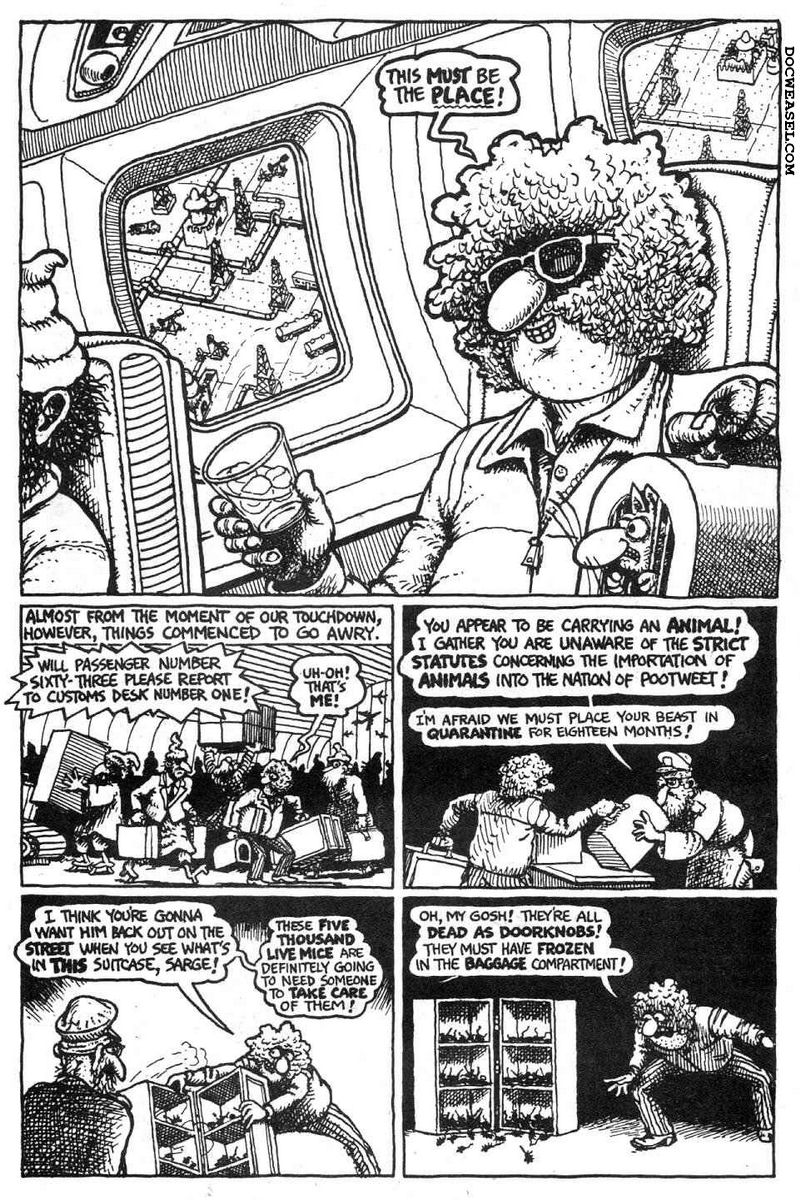
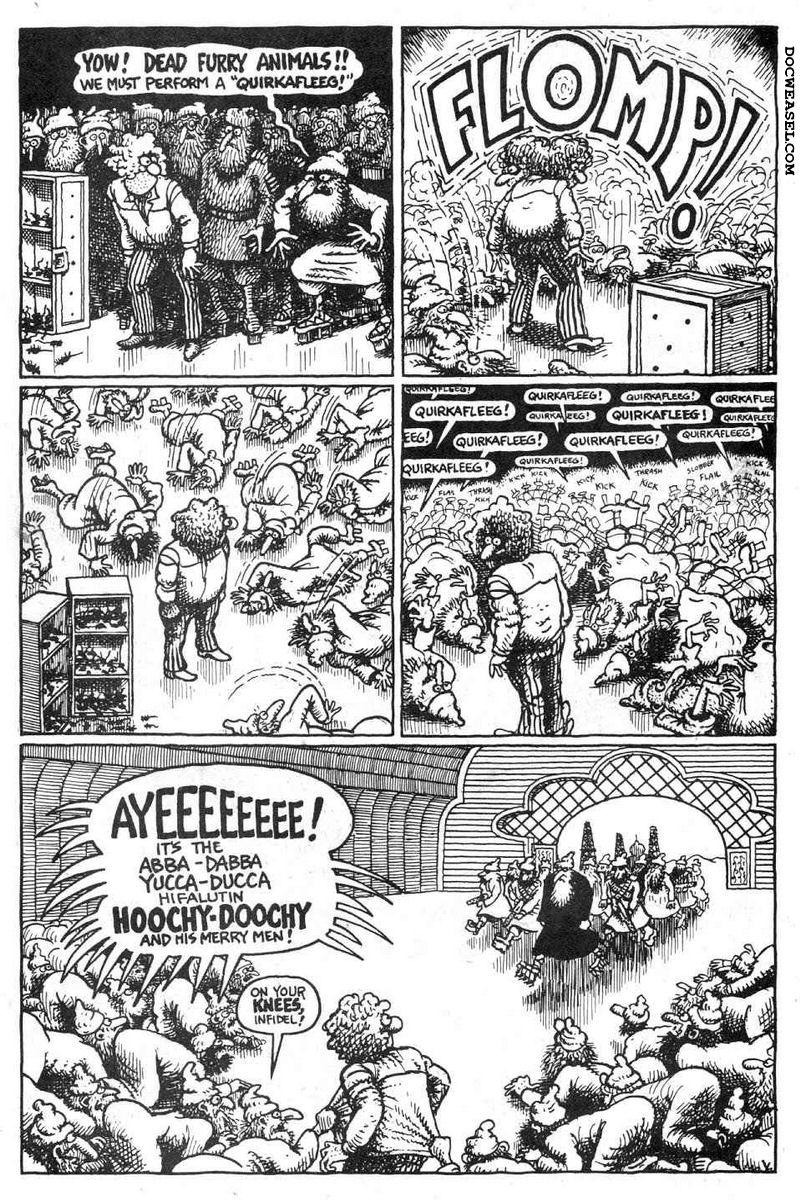
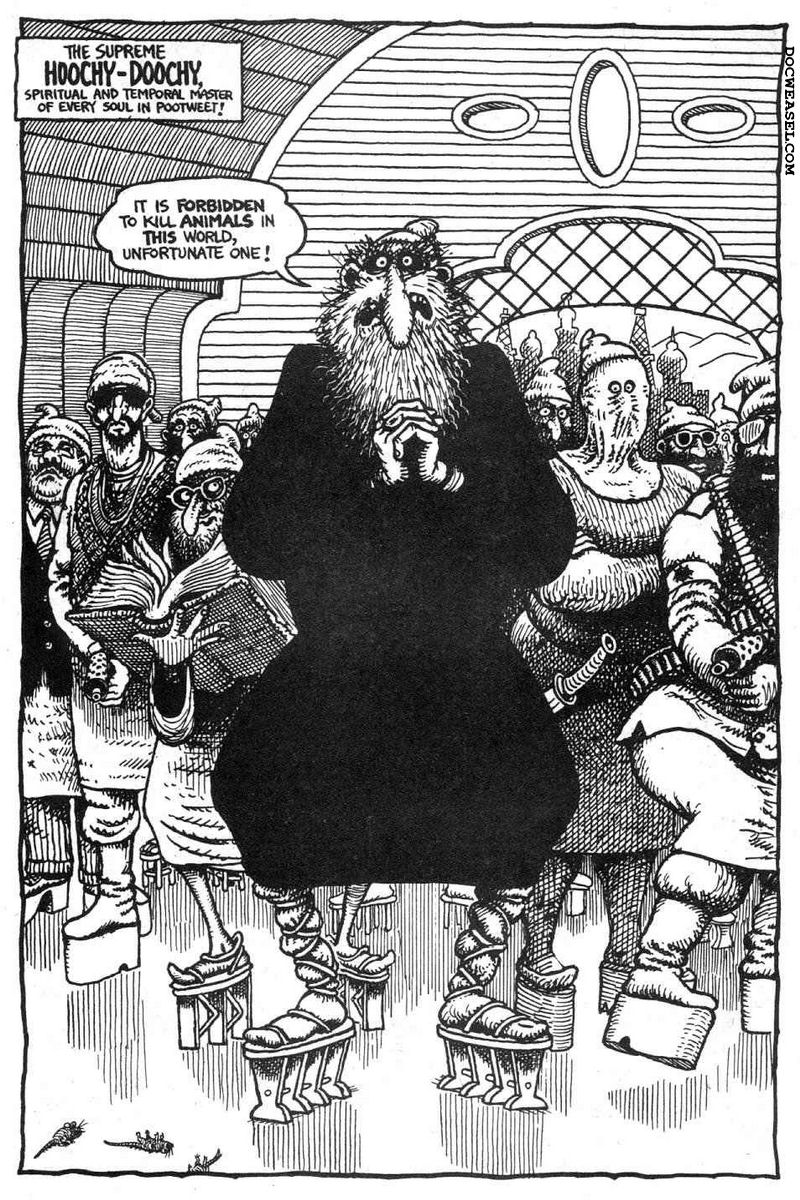
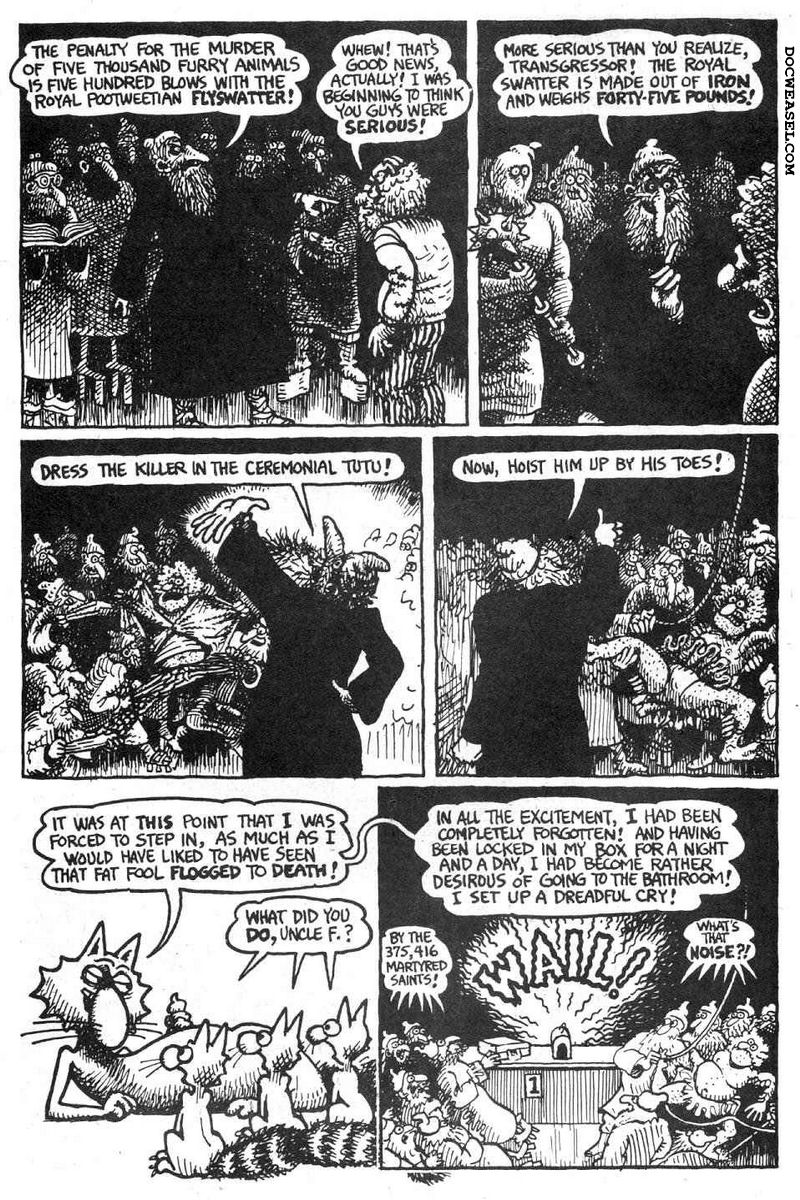
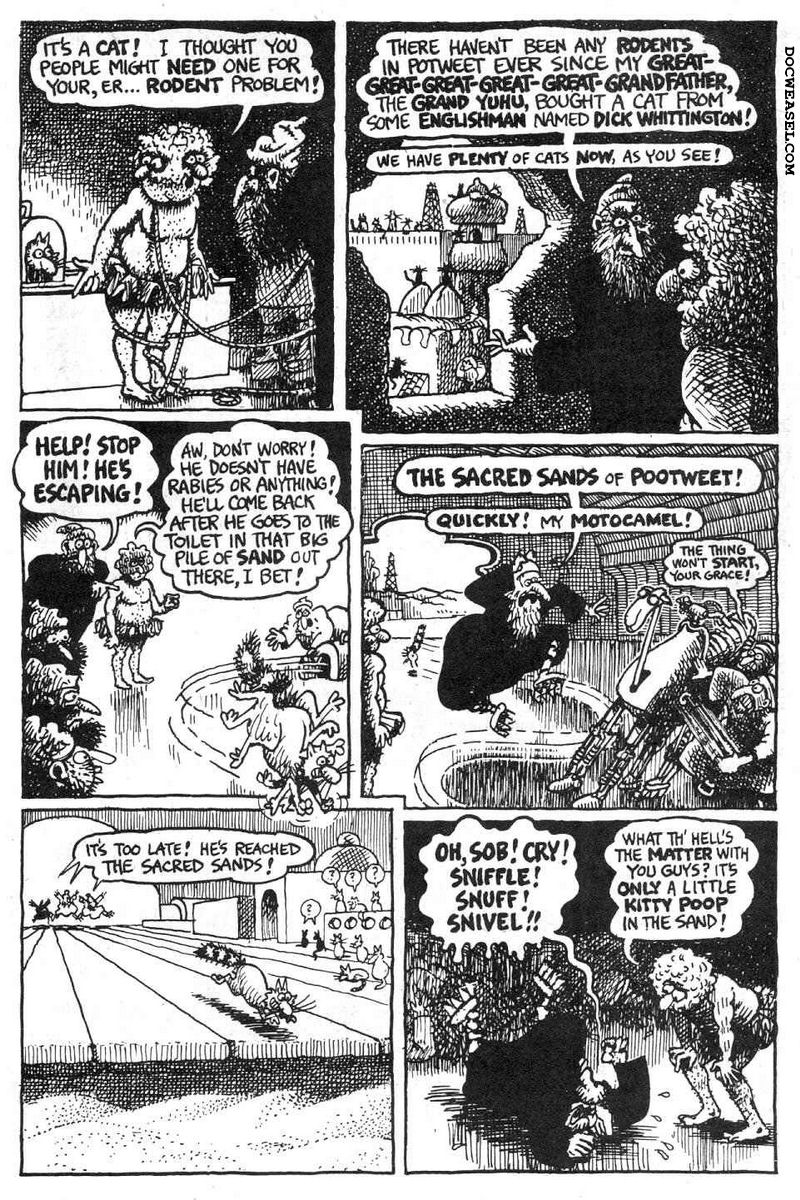
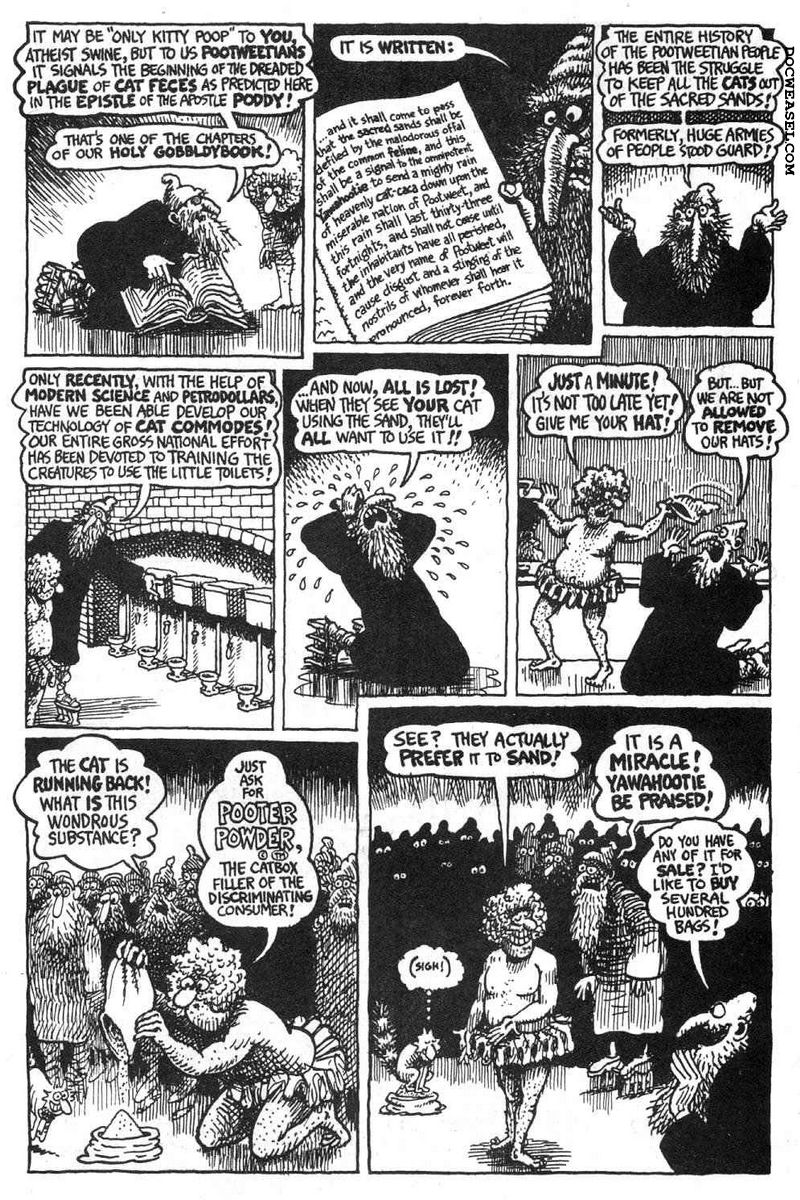
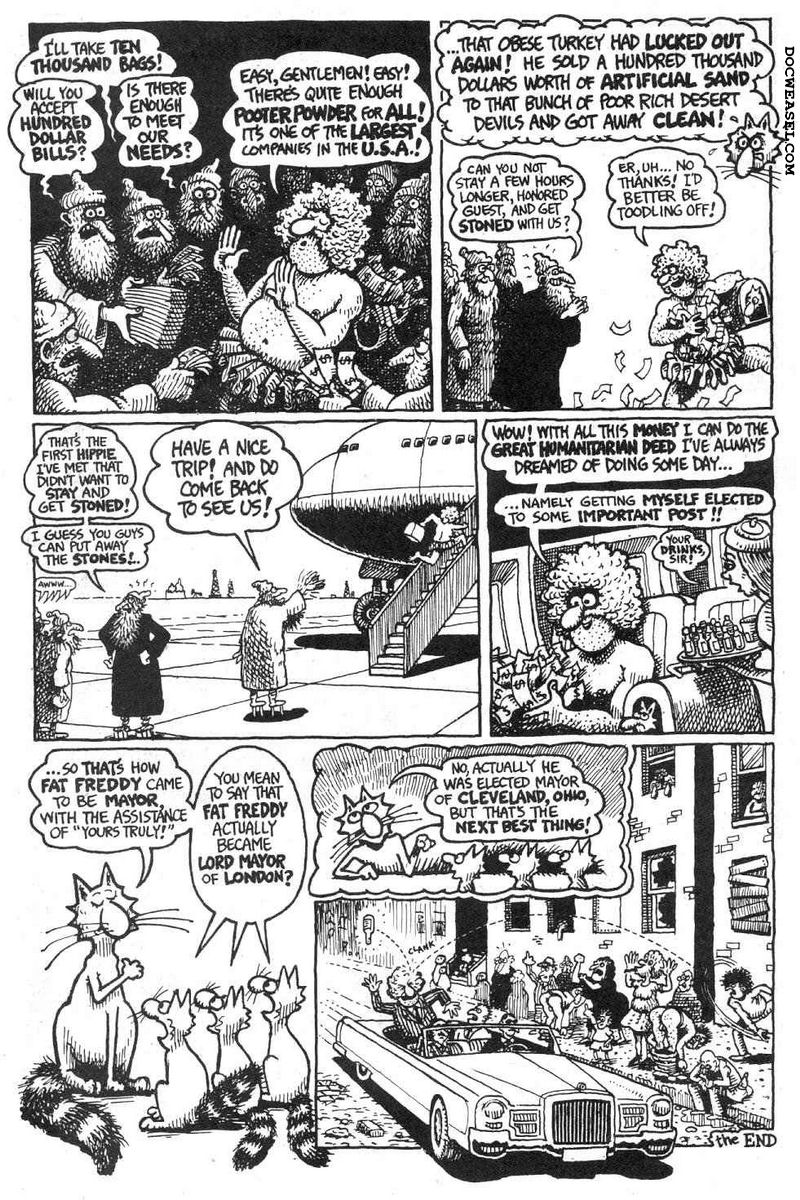
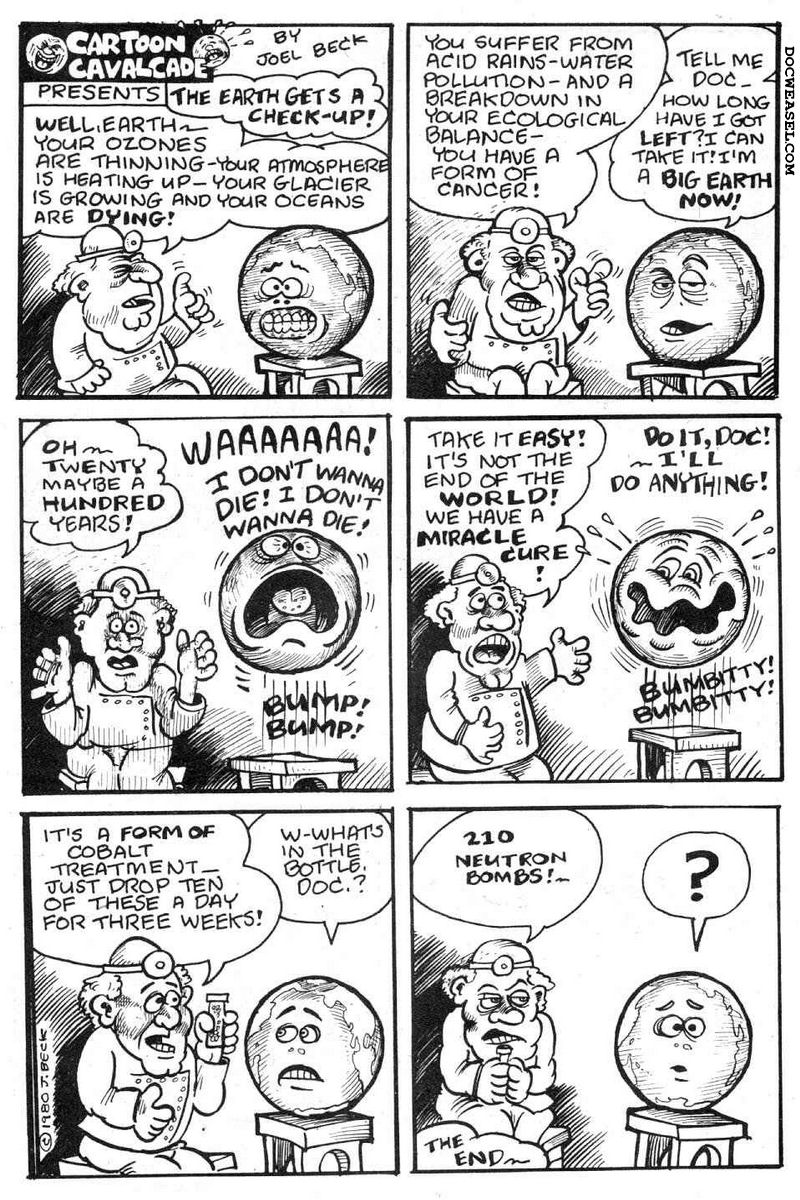
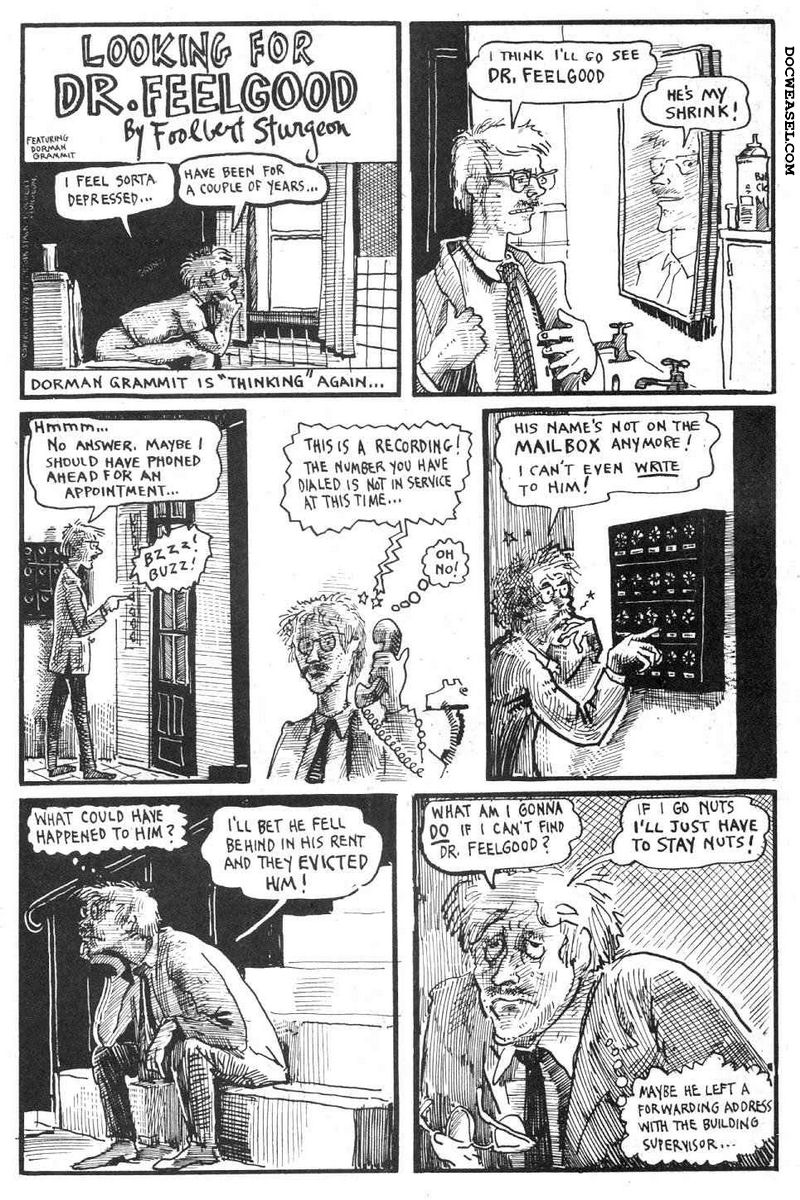
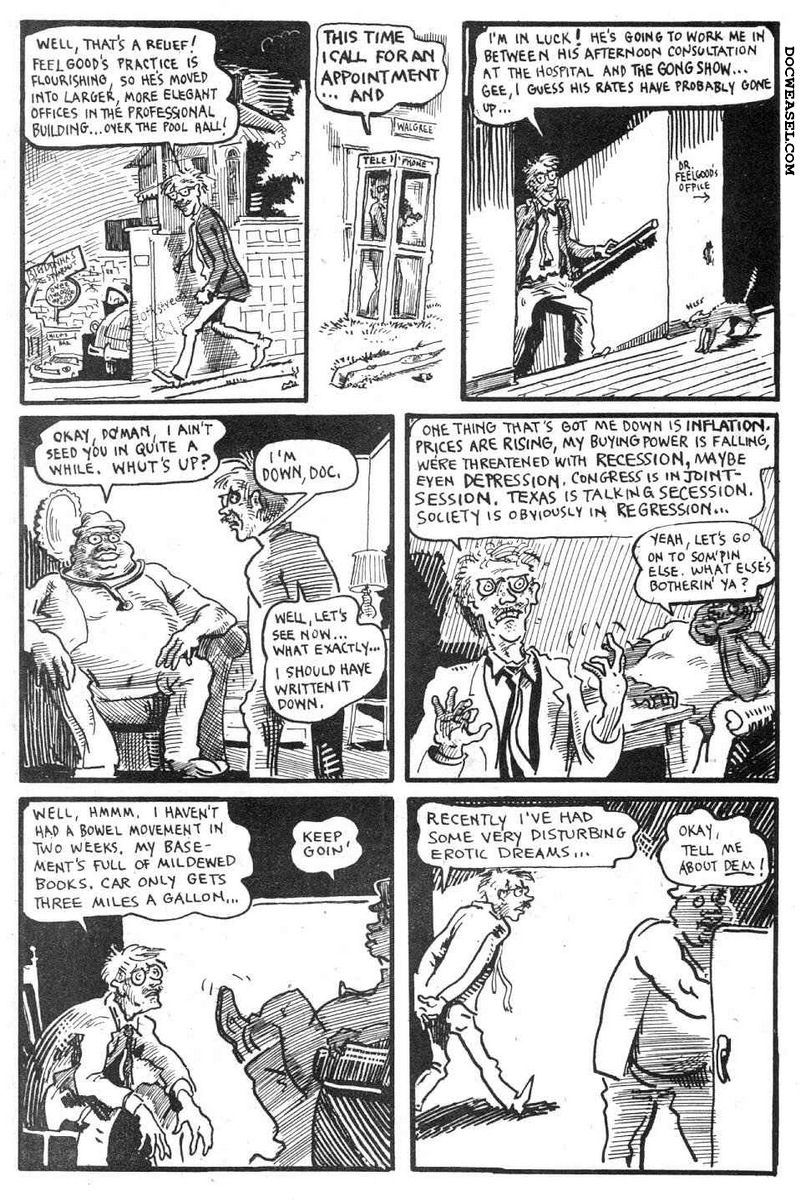
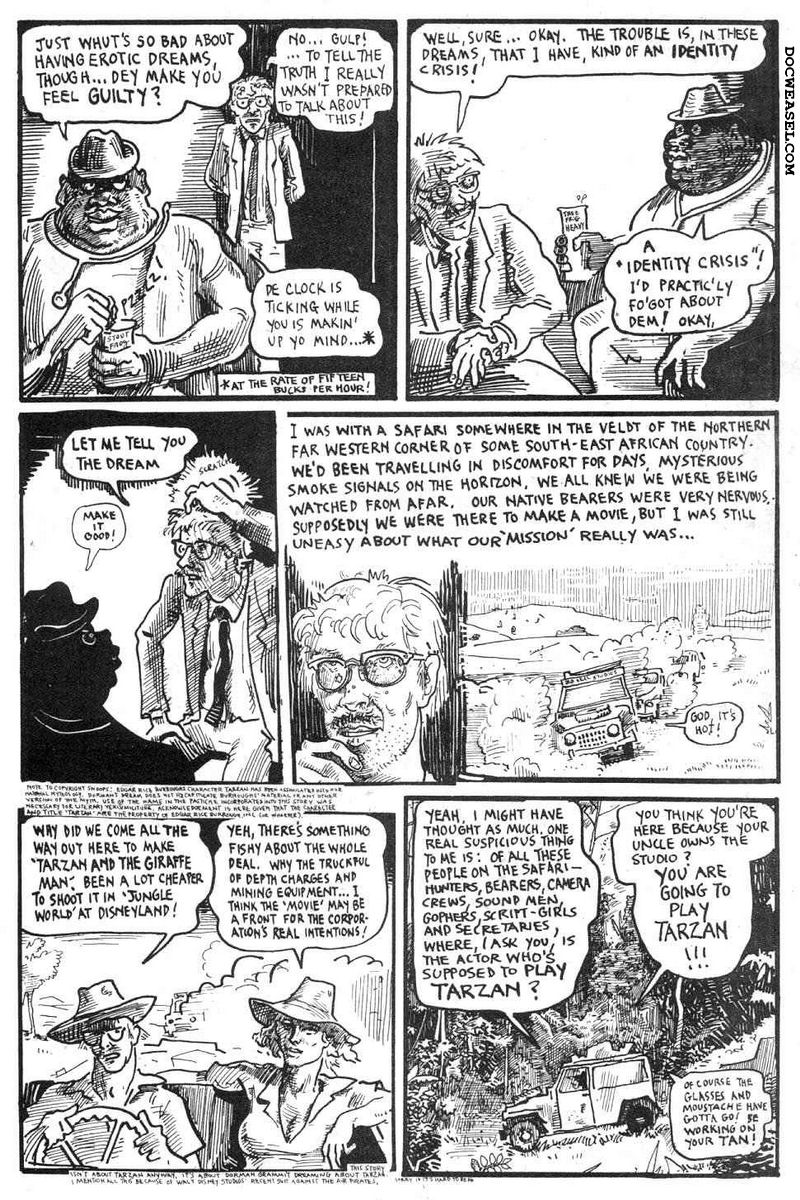
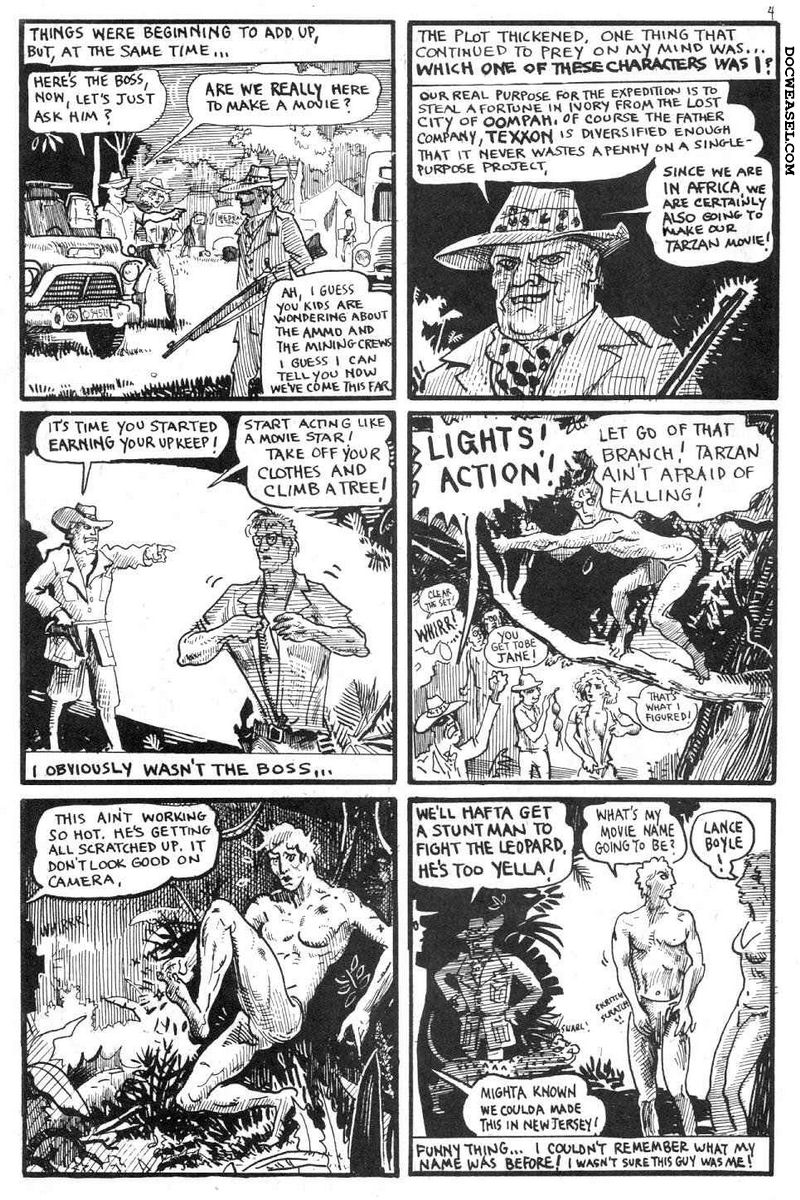
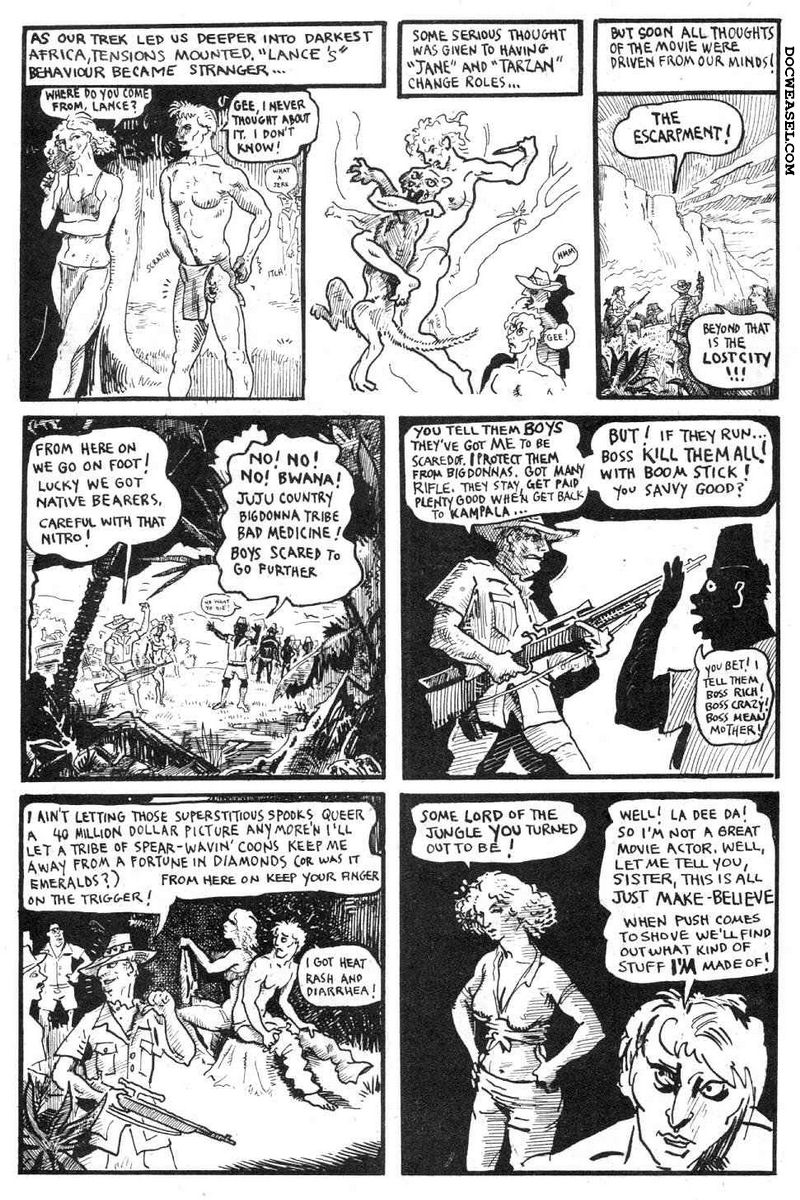
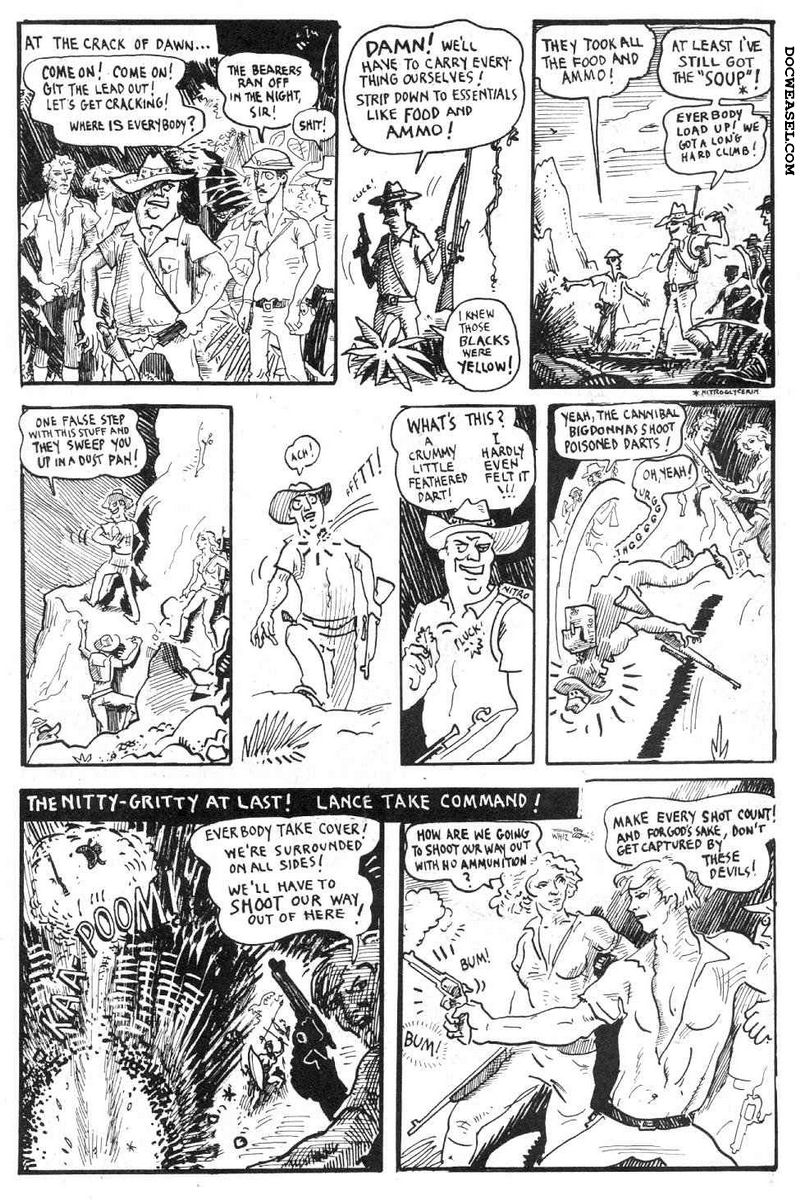
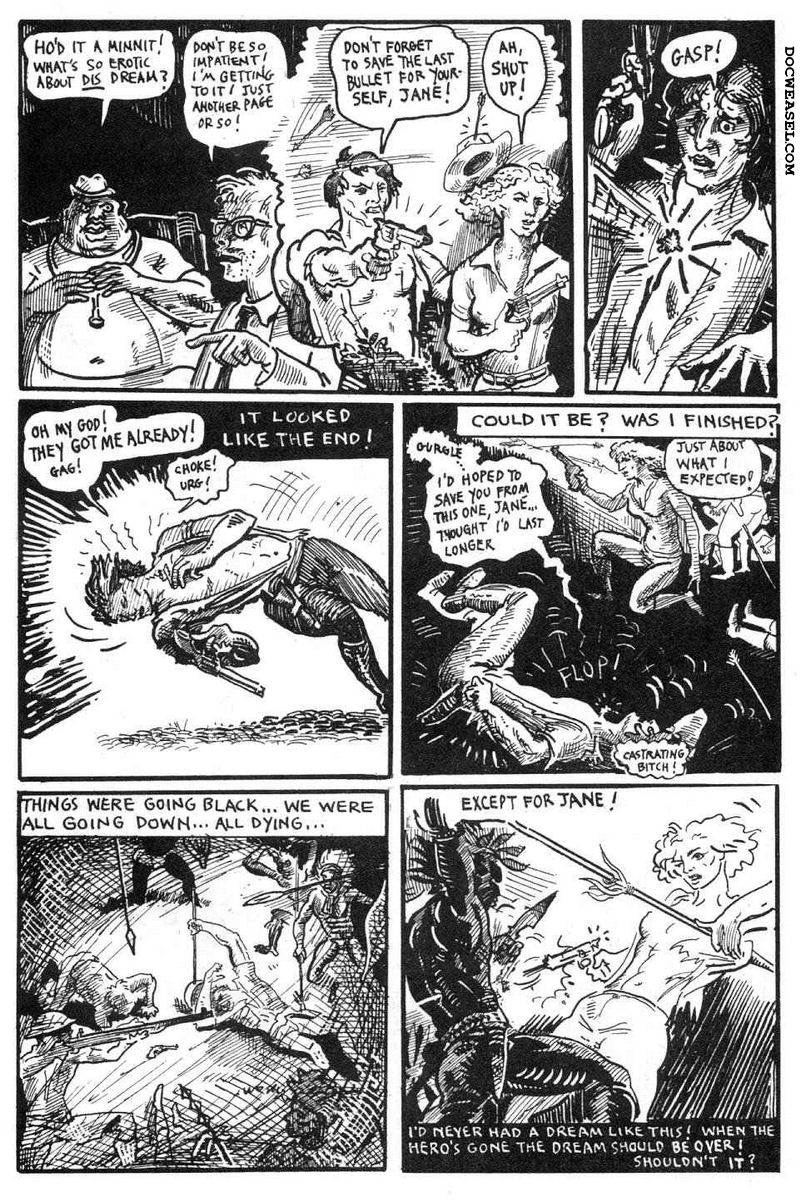
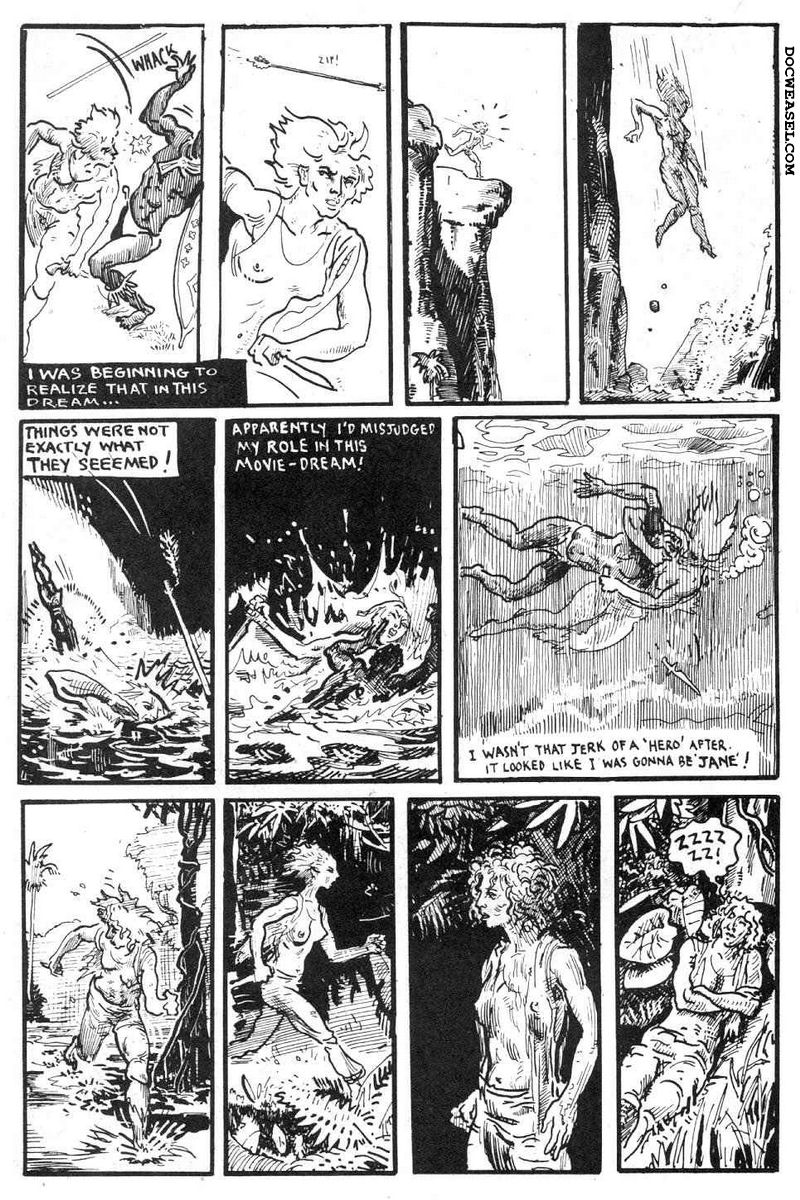
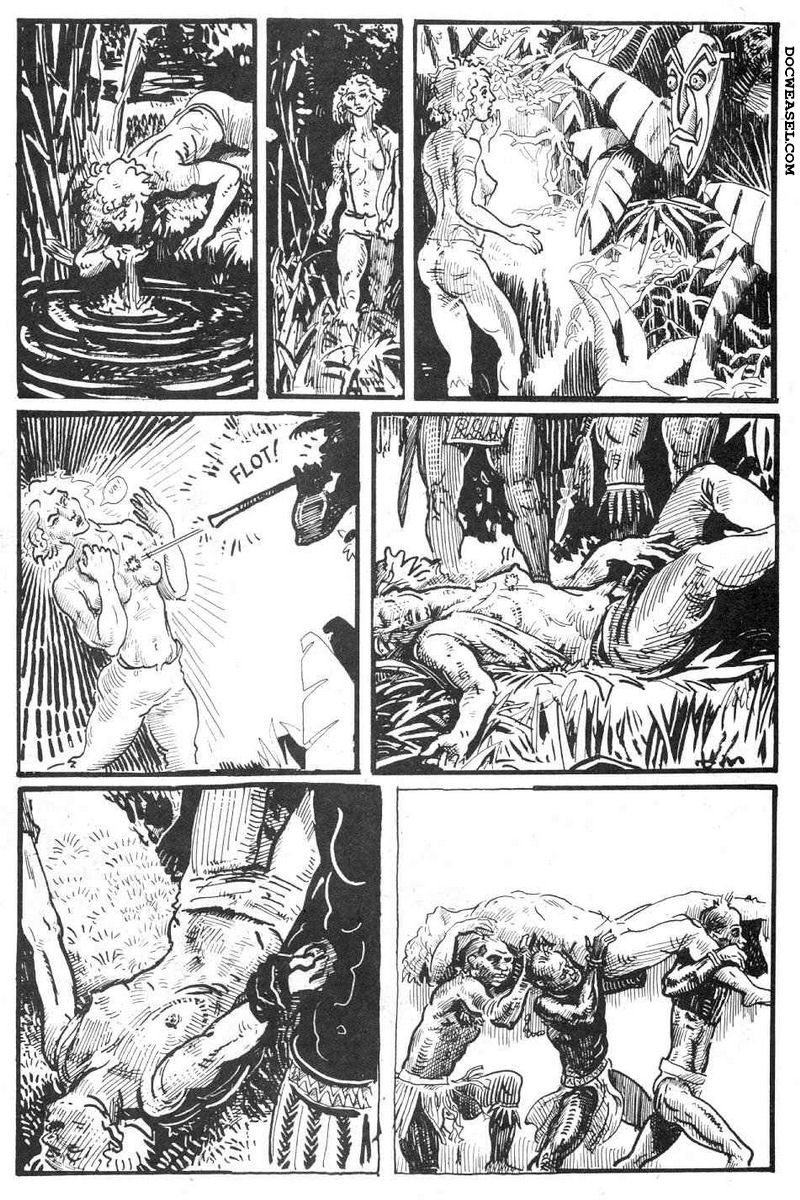
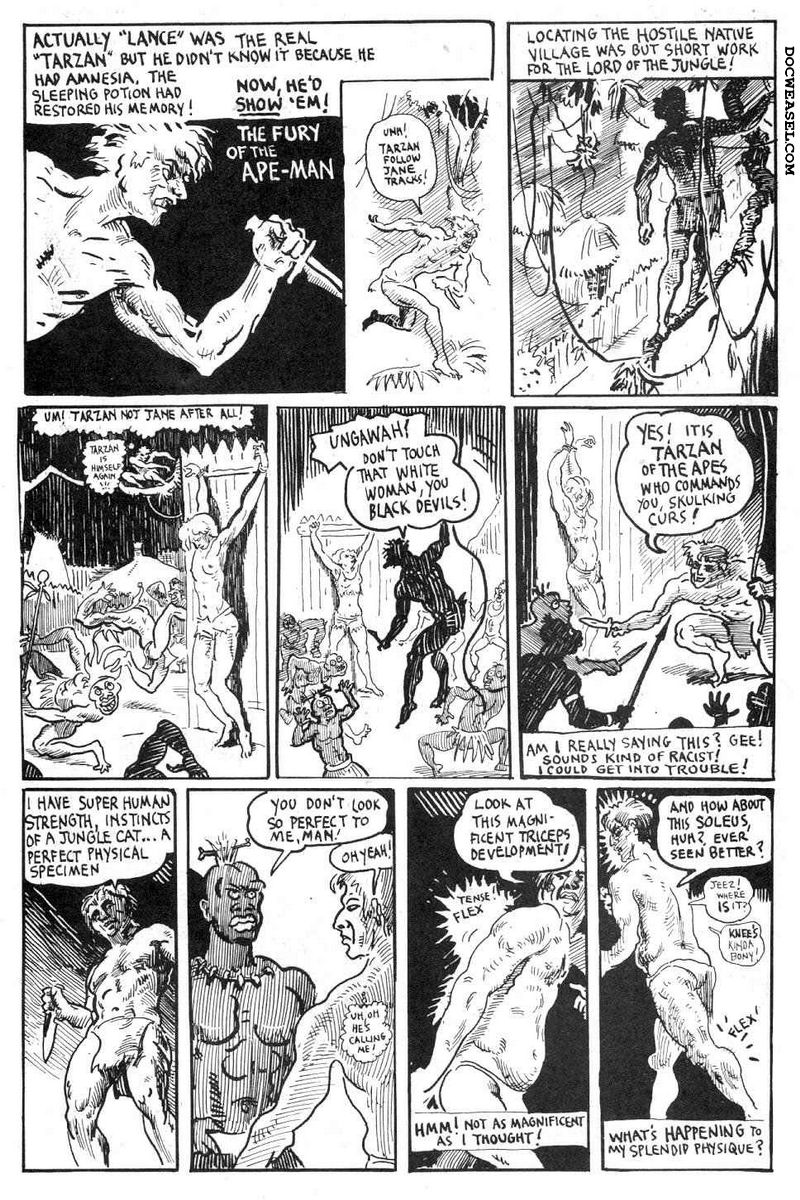
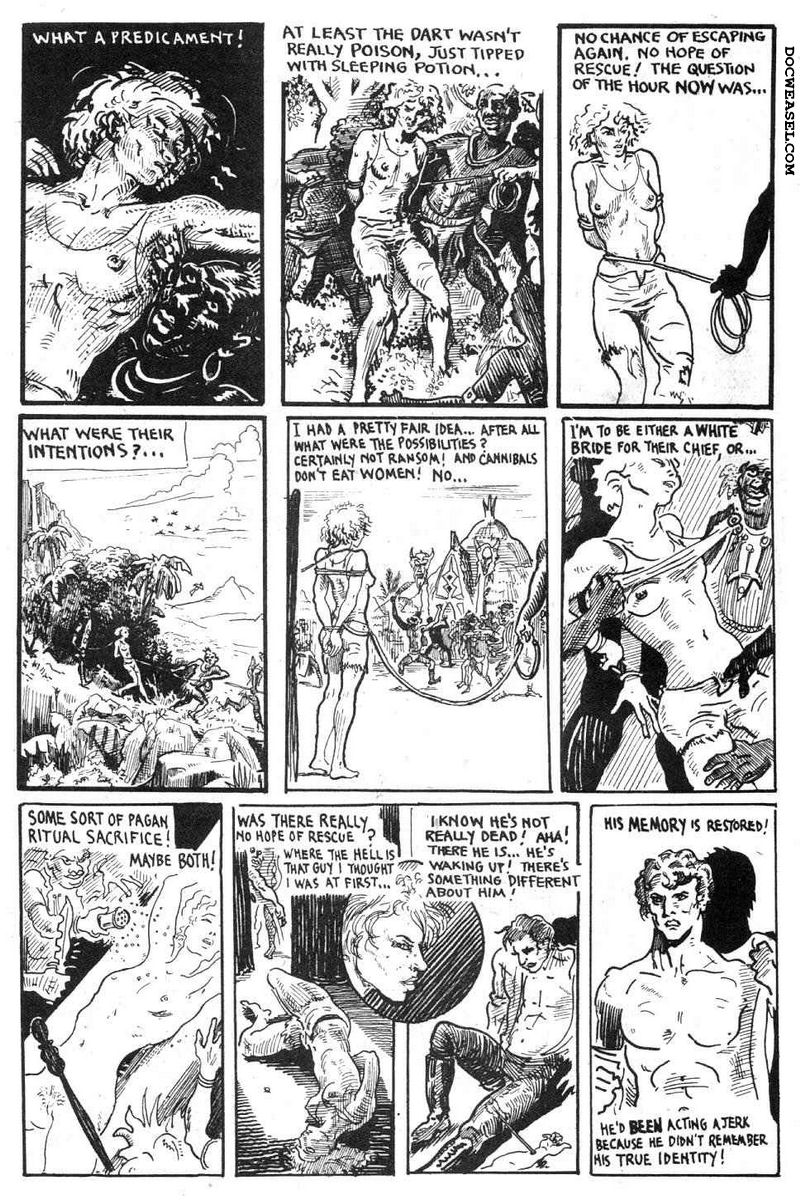
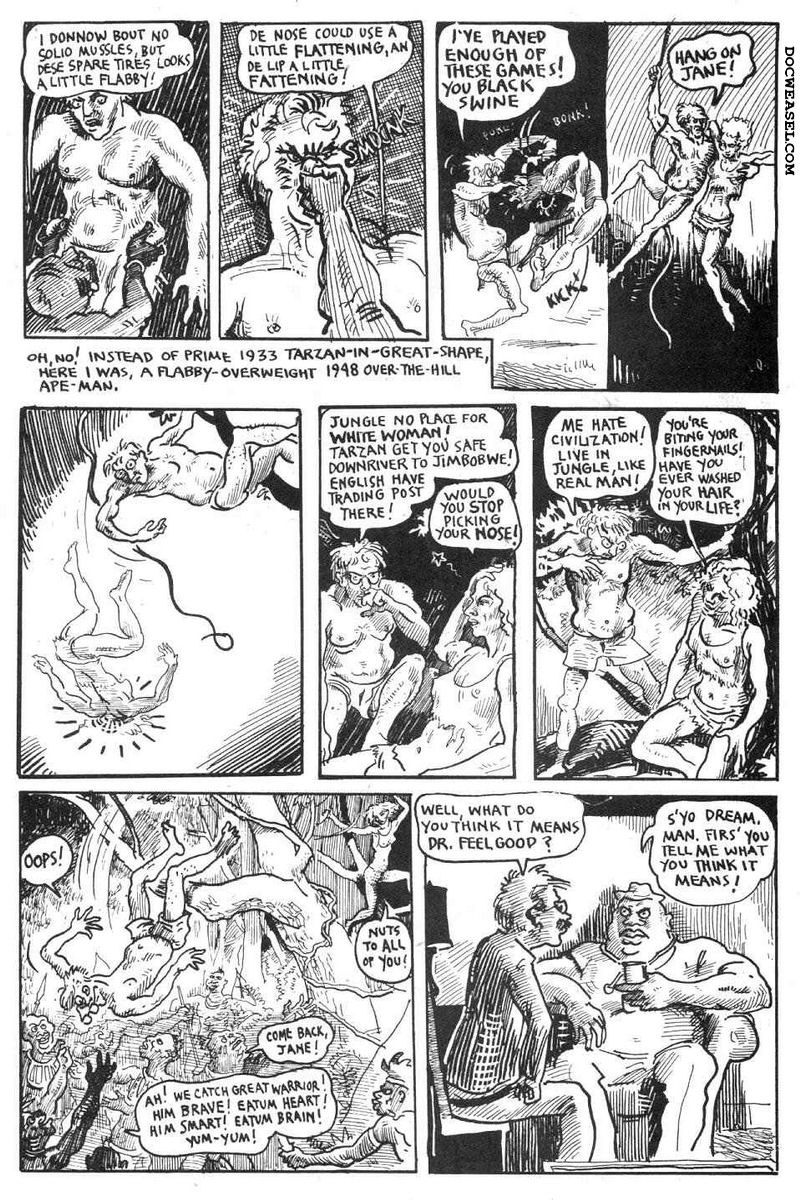
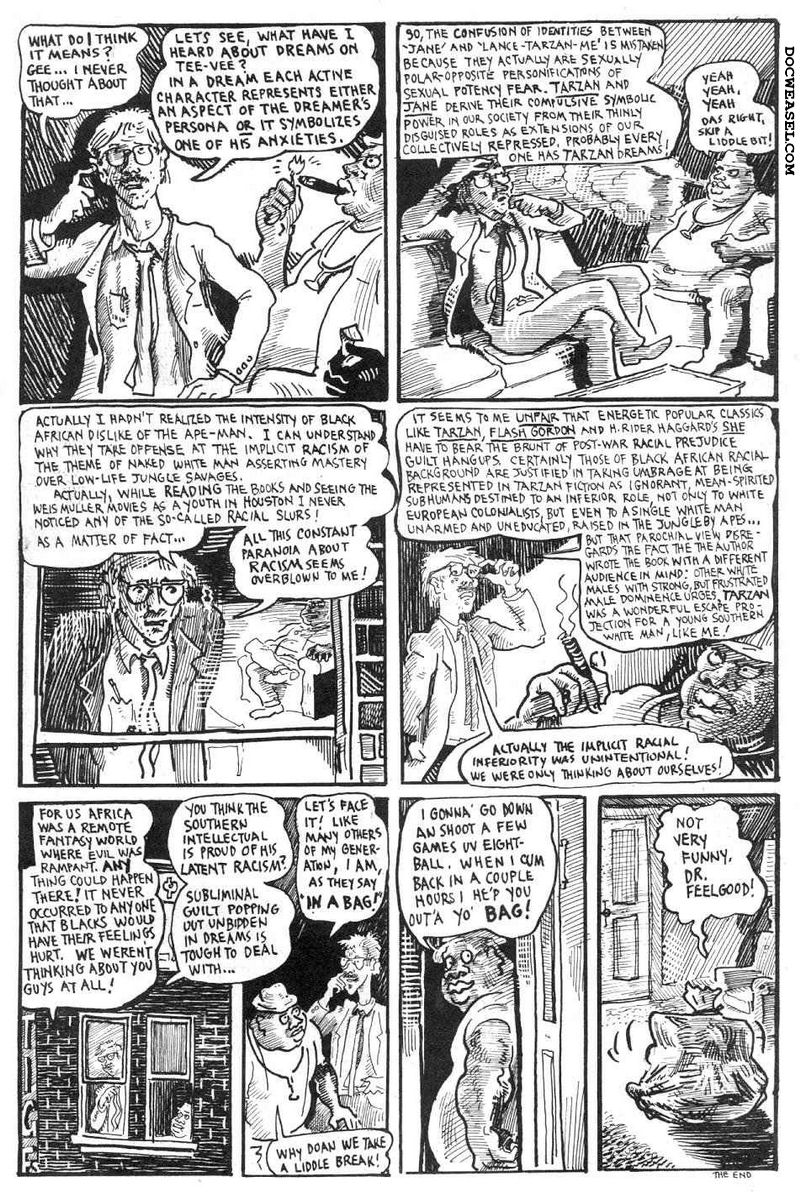
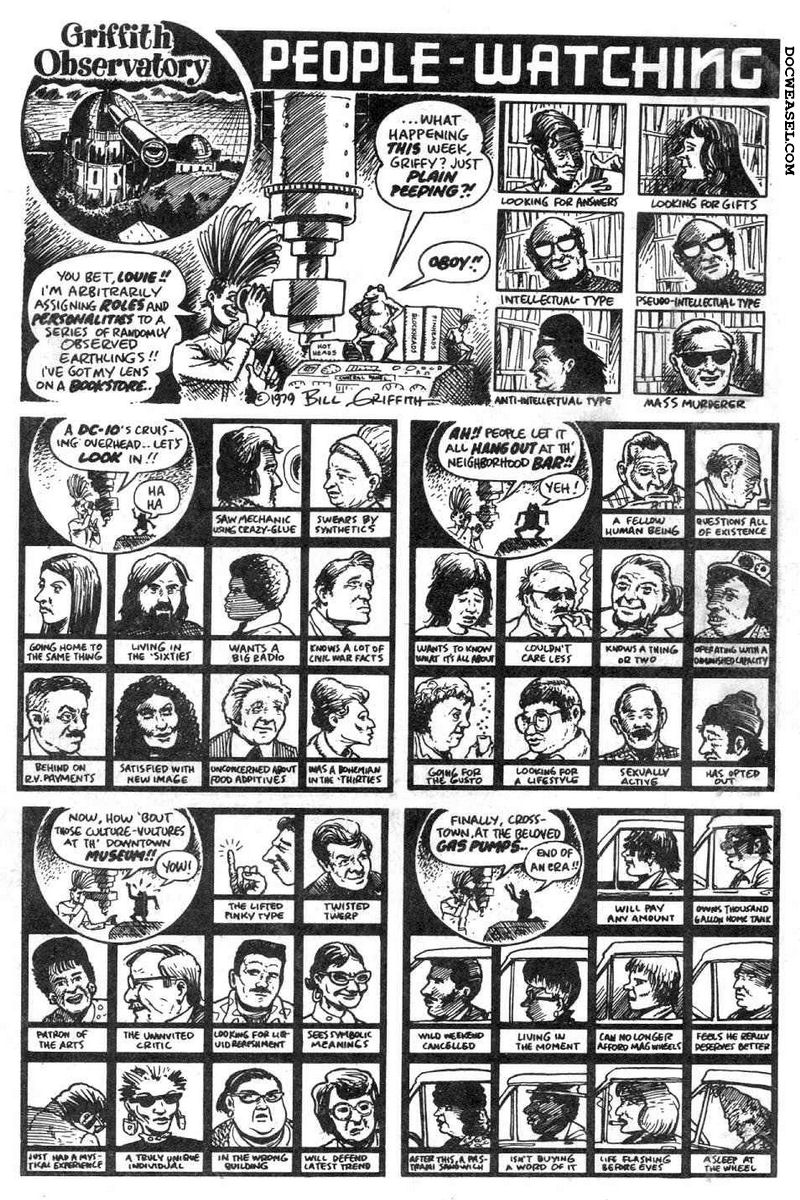
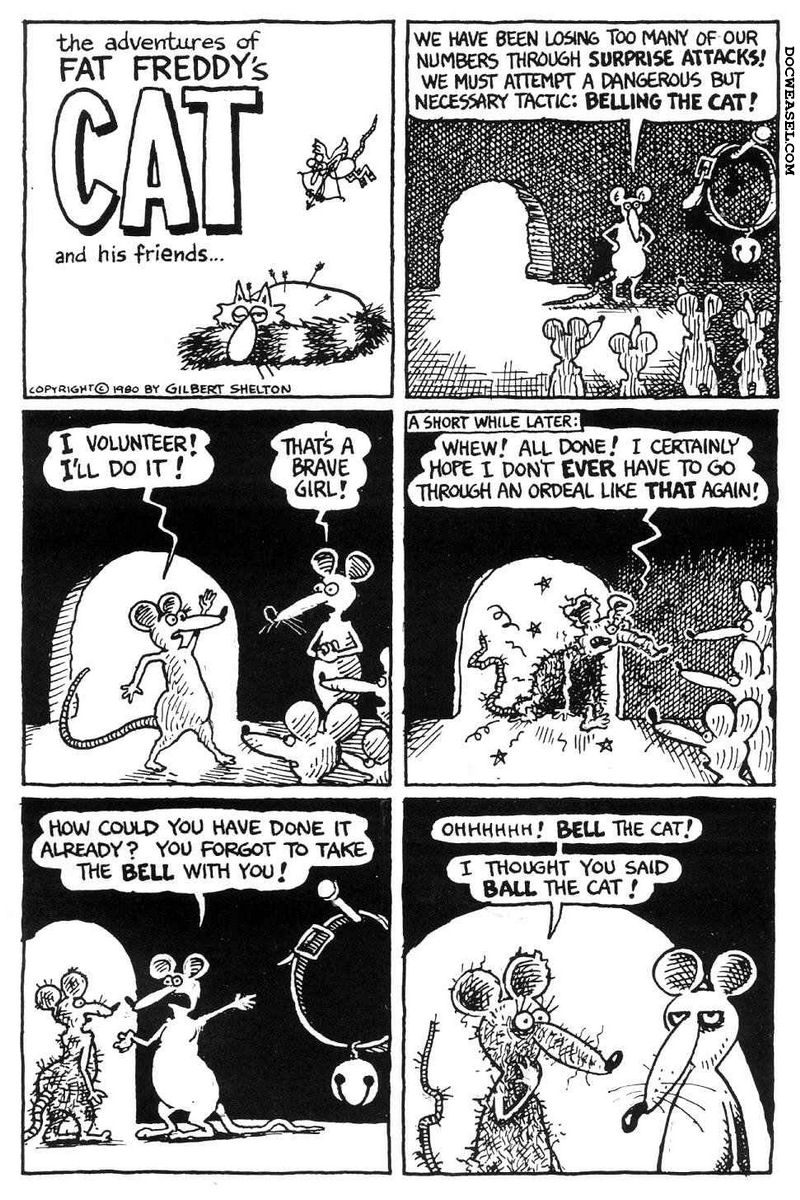
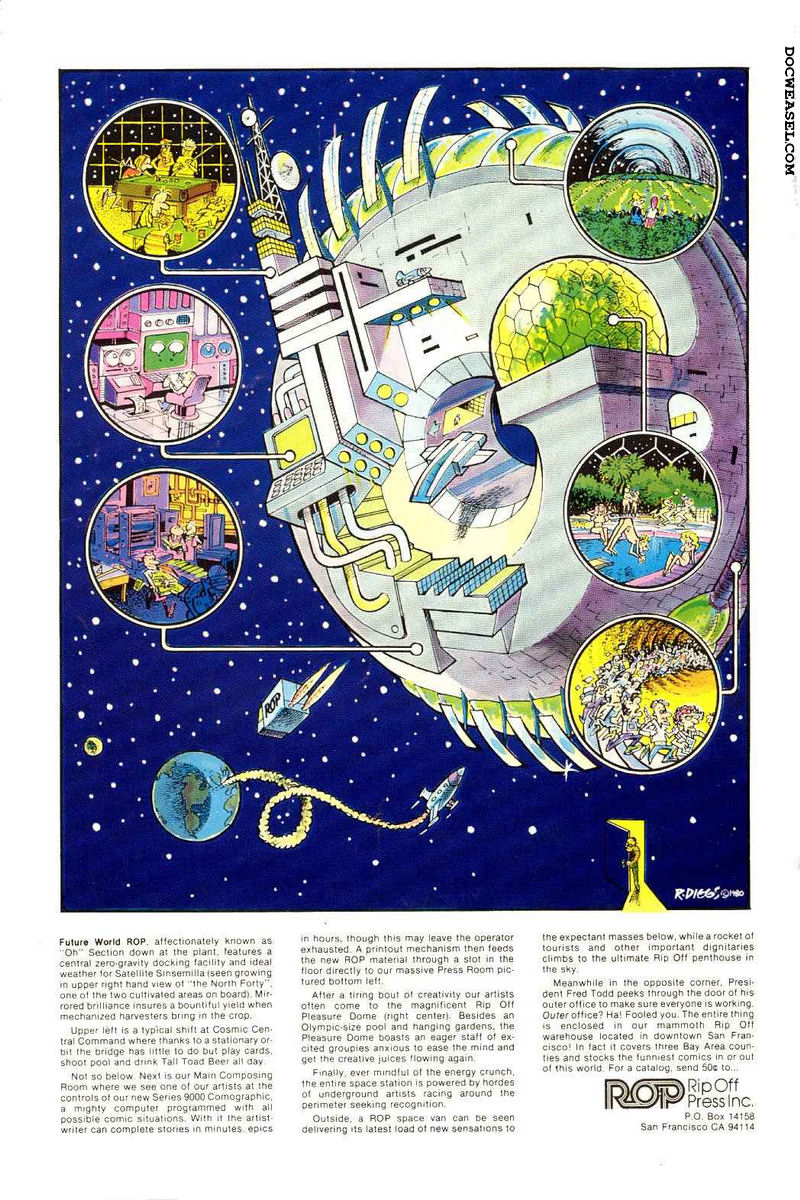
about this issue
For the first time since it launched, Rip Off Comix does not begin with a Freak Brothers story. Instead, Dave Sheridan gets things started with "The Doings of Dealer McDope, The Triangle Tryst." The story begins with Dealer lamenting the fact that he has no dope to sell, but then he gets a call from Florida Frank, who tells him he has access to 30 tons of weed in the Bahamas. So Dealer and his lady Flo are convinced to sail with Frank down to the Bahamas, where they learn the pot is actually stashed on a ship in the Bermuda Triangle! Even worse, the ship is now occupied by the Cuban Mafia, who shoot first and ask questions later.
Before long, Dealer and his compatriates are caught in a hail of gunfire from the DEA. This leads them to commandeer the DEA ship and go to war with the Cuban Mafia, which doesn't turn out so well. Fortunately, a Rastafarian sea captain also trolls these cursed waters and saves Dealer and his drug buddies from certain drowning...if the stoned captain can be trusted. "The Triangle Tryst" is the type of rollicking drug adventure that Sheridan excels at.
The Dealer McDope story is the only comic in this issue remotely related to Freak Brothers-style mischievousness, as much of the book is devoted to "Cartoon Calvacade" one-pagers from Joel Beck and "Griffith" Observatory" one-pagers from Bill Griffith. While these comics are often rewarding, some of the 18 pages of strips about highly contemporary issues and social trends in 1980 are almost certain to feel dated. Not that current relevance can't be found in these strips, as both Beck and (especially) Griffith tackle subjects that still apply to today's society.
Gilbert Shelton also contributes a multipage Fat Freddy's Cat story, "The Sacred Sands of Pootweet, or The Mayor's Meower," which is about how Fat Freddy tries to create a rodent infestation in a foreign country so he can use his cat's mousing skills to make a small fortune. Needless to say, the plan backfires, but Freddy is quick to turn the disaster into a triumph.
Frank Stack hits a high note with his "Looking for Dr. Feelgood" story, in which everyman Dorman tracks down Dr. Feelgood to tell him about his latest recurring dream. In the dream, Dorman is on an African safari with a corporation that portends to be making a Tarzan movie, but that's just a cover for their nefarious plan to steal a fortune in ivory and diamonds from a lost city. As the dream progresses, Dorman becomes uncertain if he is represented in the dream as the primary male figure or the primary female figure, as the male figure is rendered unconscious, yet the female continues on within the adventurous story.
Dorman also recognizes there are underlying racial issues in his dream, as both male and female figures either dominate or become dominated by racist stereotypes of African-jungle barbarians. Not surprisingly, the black Dr. Feelgood is rankled by how Dorman rationalizes such portrayals in his dream, but Feelgood is an easygoing fellow and doesn't resort to crass revenge tactics with Dorman. But Feelgood isn't above conveying his feelings with certain non-violent maneuvers!
"Looking for Dr. Feelgood" is somewhat of a reinterpretation of Stack's brilliant Amazon Comics story from 1972, which also featured a powerful female protagonist and an academic discussion about what the story truly meant. "Looking for Dr. Feelgood" is a terrific story that shows off Stack's unique ability to thread scholarly elements into comic stories about sex and violence. It helps elevate Rip Off Comix #7 from being just an average issue to yet another solid one.
HISTORICAL FOOTNOTES
It is currently unknown how many copies of this comic book were printed. It has not been reprinted.
COMIC CREATORS
Gilbert Shelton 1 (shared), 27-35, 51
Harry Driggs 1 (shared), 2, 52
Dave Sheridan 1 (shared), 3-10
Joel Beck 1 (shared), 11-17, 36
Bill Griffith 1 (shared), 18-26, 50
Frank Stack 1 (shared), 37-49
